China was the 55th Country in the global network of Bank of Credit and Commerce International (BCCI) and the second international bank that established a branch in China's Shenzen Special Economic Zone with a dedicated Management Training Development Centre that played a modest part in the implementation of the Reform and Open-door Policy of China.
The untapped market potential of China, with its rising stature as a leader of the Third World, was too large for any international bank to ignore. It was not surprising that Mr Agha Hasan Abedi, BCC President and also Chairman of the Board of Trustees, Third World Foundation, should have a presence in China, not only to continue expanding BCC’s network of branches but to reinforce BCC's commitment to also serve the cause of the Third World without the pursuit of material gain.
Country information
China, officially the People's Republic of China (PRC), is a country in the Far East, China and the largest of all Asian countries occupying nearly the entire East Asian landmass. Among the major countries of the world, China is surpassed in area by only Russia and Canada, and it is almost as large as the whole of Europe.

China is bordered by Mongolia to the north; Russia and North Korea to the northeast; the Yellow Sea and the East China Sea to the east; the South China Sea to the southeast; Vietnam, Laos, Myanmar (Burma), India, Bhutan, and Nepal to the south; Pakistan to the southwest; and Afghanistan, Tajikistan, Kyrgyzstan, and Kazakhstan to the west, and Regional Borders with Hong Kong and Macau.
By the early 1900s, China the British, Germany, Russia, France, USA, Austria-Hungary had a presence in the country, followed by a long campaign involving the exploitation of the Chinese economy by the western powers, but mainly of Britain, France, and the U.S. Before this, China was at the centre of the world economy throughout the 1700s due to their widely sought exports of porcelain, silk, and tea, all under the era of the Qing dynasty.
British opium exports to China and addition of the Chinese people
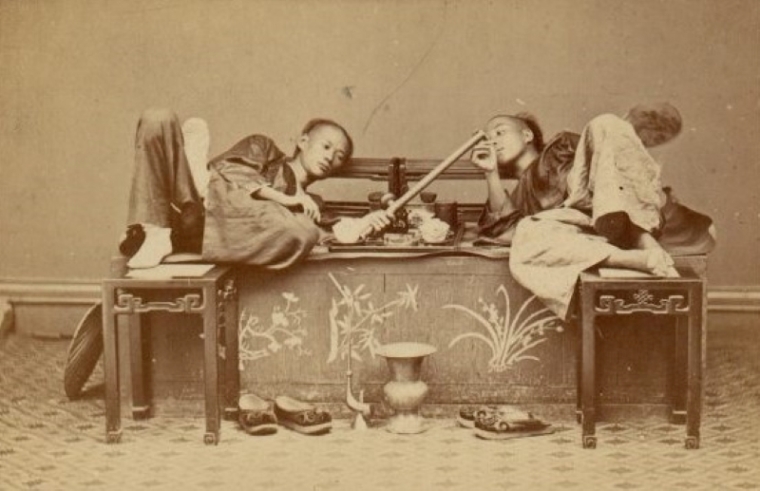
The two Opium Wars arose when China attempted to ban the opium trade. The western traders (primarily British) had been illegally exporting opium mainly from India to China since the 18th century resulting in widespread addiction in China.
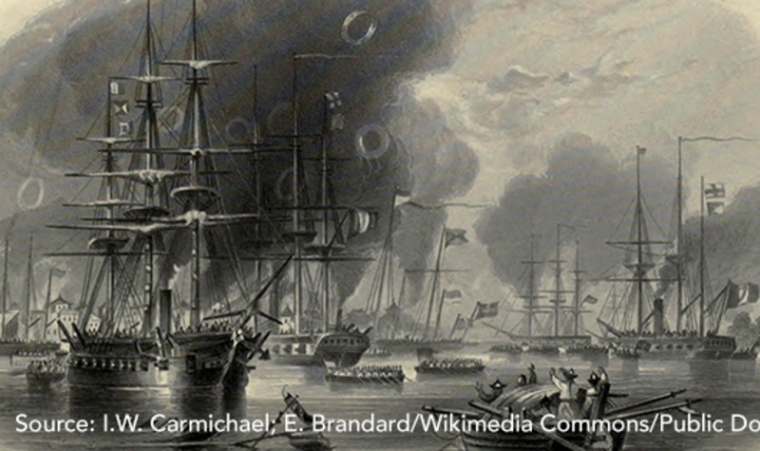
From an economic standpoint, China the introduction of factories and machinery did not create much of an effect, as most of the goods being produced in China were traded or invested in foreign interests, rather than in Chinese interests.
The first Opium War was fought between China and Great Britain from 1839 to 1842. In the second Opium War, from 1856 to 1860, a weakened China fought both Great Britain and France. China lost both wars. China had to cede the territory of Hong Kong to British control, open treaty ports to trade with foreigners, and grant special rights to foreigners operating within the treaty ports. In addition, the Chinese government had to stand by as the British increased their opium sales to people in China.
The introduction of factories and machinery did not create much of an effect, as most of the goods being produced in China were traded or invested in foreign interests, rather than in Chinese interests.
Collapse of China's Monarchy
The Chinese monarchy collapsed in 1912 and was replaced by the Repuplic of China under an alliance of two parties. The country became fragmented and unstable but was reunified in 1928.
Japan invaded China in 1937 but were expelled from China in 1945. After the civil war that took place and ended in 1949, the Chinese Communist Party founded in 1921, established the People's Republic of China (PRC) and took control in the mainland, while the opposing Kuomintang-led Republic of China government with the aim to retake mainland China. The PRC claims Taiwan as part of its territory under its "One China Principle".
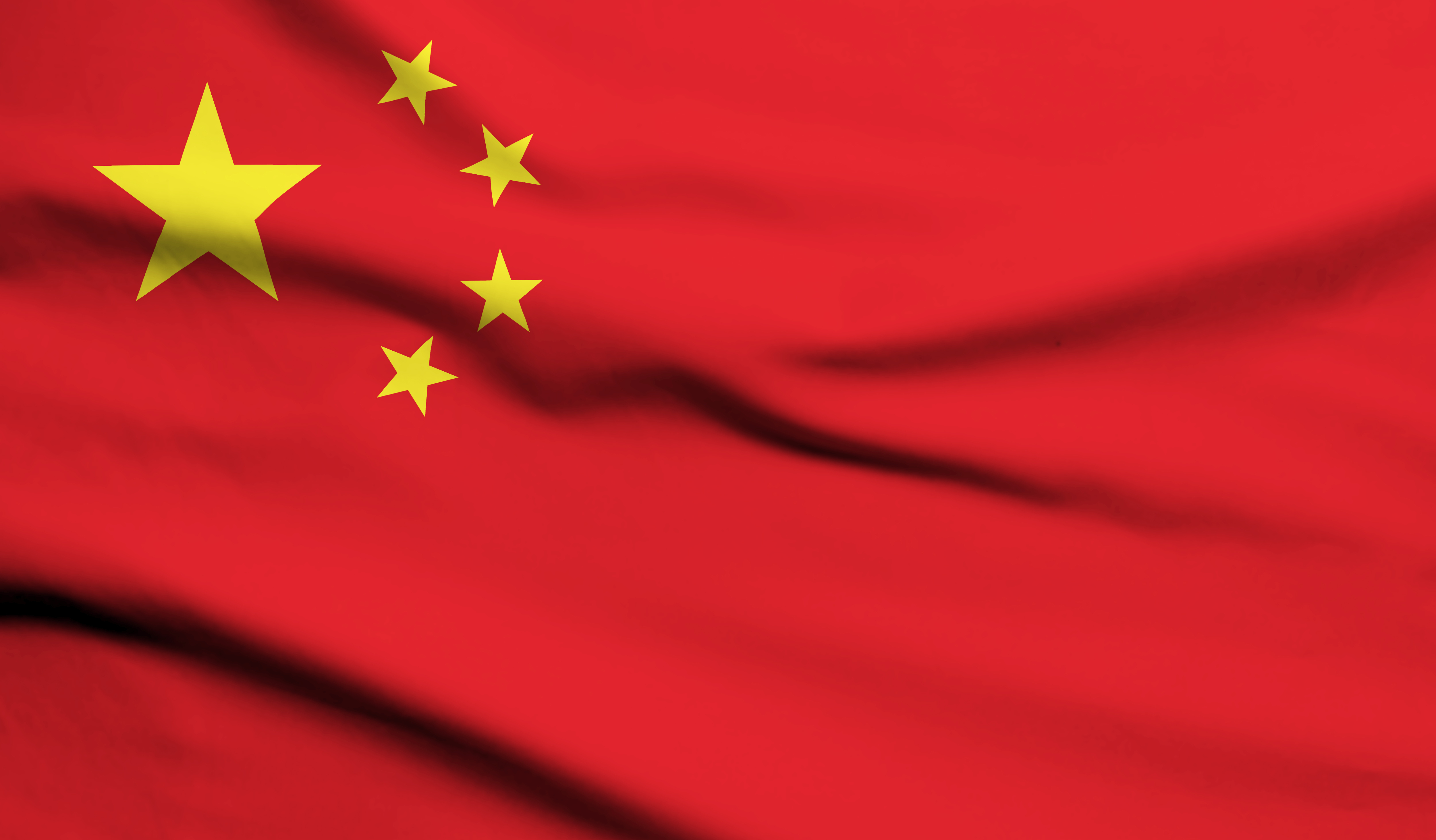
On 1 October 1949, the Chinese Communist leader Mao Zedong declared the creation of the People's Republic of China (PRC) and removed the influence of the western powers that had been exploiting China since the early 1900s.

The natural and physical features of China is marked by many splendours. Mount Everest, situated on the border between China and Nepal, is the highest peak in the world.
Population and language
China had the world’s largest population with nearly one billion people when BCCI first entered China in the early 1980s.
The economic reforms introduced in China from the late 1970s caused many of the rural workers to move to the cities in search of factory jobs, but a large number stayed behind, where they usually engaged in light manufacturing for both domestic and export markets.
Mandarin Chinese was the official language of China.
The use of English was very limited.
Economy and foreign trade
Prior to the initiation of economic reforms and trade liberalisation in the 1980s, China maintained policies that kept the economy very poor, stagnant, centrally controlled, vastly inefficient, and relatively isolated from the global economy.
Since opening up to foreign trade and investment and implementing free-market reforms, China began the transformation from its agriculturally based to a manufacturing and services-based economy; and the transformation from a closed to an open economy.
The focus of the government was to increase China's participation in the world's main export markets and China's involvement in infrastructure developments globally.
Beginning in 1978, the Chinese economy entered a phase of reforms that featured the relaxation of direct planning controls, decentralisation of decision making in state-owned enterprises, and the emergence of a non-state sector. Since the adoption of the outward-oriented reform policies China’s foreign trade has expanded at a dramatic rate.
According to IMF, International Financial Statistics, June 1990; and IMF, International Financial Statistics Yearbook, 1989, China's total exports in 1990 reached Y297 billion and Y255 million.
The great bulk of China’s exports were manufactured goods, while agricultural products were also significant exports. Most of China’s imports consisted of machinery and apparatus (including semiconductors, computers, and office machines), chemicals, and fuels.
Chinese construction companies were also becoming active in many developing countries and perhaps especially in the developing countries.
Banking in China
In the earliest years of the People's Republic, banking was the first sector to be completely socialised and it involved the nationalisation of all banks. Until then, due to unfair treaties, the foreign banks, of which the largest was Hong Kong Shanghai Banking Corporation (HSBC), enjoyed complete control over China's international remittance and foreign trade financing.
In the 1970s and until mid-1980s the private financial sector virtually did not exist and all banking was done through branches of the state-owned People’s Bank of China.
In the 1980s, the government opened the banking system and allowed five state-owned specialised banks to accept deposits and conduct banking business. These five specialised banks were the Industrial & Commercial Bank of China (ICBC), the China Construction Bank (CCB), the Bank of China (BoC), the Bank of Communications (BoCom), and the Agricultural Bank of China (ABC).
Due to restrictions on foreign bank branches operating in China, many well-known international banks set up a representative office in the capital, Beijing, to explore the potential of the Chinese market-place and offer international banking services outside China.
BCCI was to be a strong contender among them.
Special Economic Zones
Special Economic Zones (SEZs) (also called Free Trade Zones) in China are defined as small geographical areas that allow foreign companies to have access to lower taxes and better economic conditions for their business.
SEZs were to be amalgamations of various economic activities rather than niche sectorial entities and hence differed from existing export processing zones (EPZs). The primary goal of the new SEZs was to attract foreign investment into China, catalyze the use of technology and increase the country's exports.
To do this, they were given special tax incentives, set up in areas that had natural advantages or strong factor resources, and were generally operated under robust Public-Private partnership models.
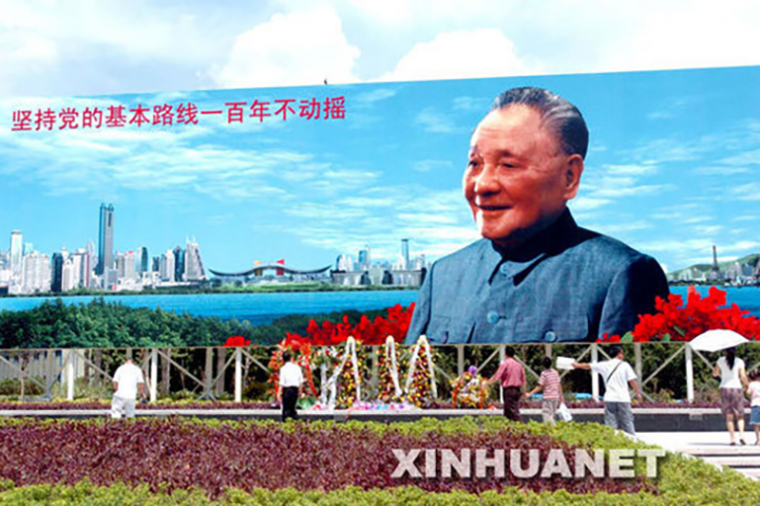
To attract foreign investment and technology, the government of China set up Special Economic Zones (SEZs) in the 1980s. Among the first were in Shenzhen, Shantou, Zhuhai and Guangzhou in Guangdong province, Xiamen in Fujian province, and Shanghai. The four-city level SEZs (Shenzhen, Zhuhai, Shantou and Xiamen) are in coastal areas in the South of China. Shenzhen is on the eastern bank of Pearl River adjoining Hong Kong, one of the world's leading financial centres.
Products from SEZs’ are mainly sold to foreign countries. Through the improvement and promotion of their own economic conditions and preferential policies, factories were built in China with investment in the SEZs to produce those products.
Shenzhen became an experimental zone for Chinese economic reform and liberalisation. Such measures as the reestablishment of stock markets were initiated in Shenzhen and later adopted in other parts of China in order to smooth the transition to the new policies.
Foreign investment flowed in and came into SEZs seeking the almost endless supply of economically cheap and efficient labour. By 1984, when the early success of the SEZs had been confirmed, China opened its economy further, by extending similar favourable policies to 14 “coastal open cities” and in the following year to cities in the Pearl River Delta, the Yangtze River Delta, and the Min Delta in Fujian.
BCCI in China
Mr Agha Hasan Abedi, BCCI President and founder, was always very conscious that China had begun to establish its international credentials and the significant economic and the financial reforms taking place in the country following the establishment of cordial relations between Beijing and Washington in 1971-1972. With the new race for development there would be a major shift in emphasis in the Chinese economy and China would be a formidable economic power.
Mr Abedi was determined that BCCI should discharge its role as the Third World's first multinational bank with a large network of branches connecting the developing countries and the financial and industrial centres of the world. This offered BCCI the best opportunity to link China to BCCI's branches with state-owned banks and organisation seeking to explore target markets in the Third World.
BCCI's approach to relationship with China
Mr Agha Hasan Abedi, the BCCI President, fully understood the enormous potential in China to generate business for BCCI branches in the developing countries that constituted the Third World. He viewed China as the hope for the Third World.
In a strategic decision on relationship building with important Chinese government officials, Mr Abedi persuaded Mr Sultan Mohammad Khan (Sultan Khan in short) to accept the position as BCCI's Chief Representative in China. He was also an adviser to BCCI.
Mr Khan was Pakistan’s ambassador to China from 1966 to 1968 and Foreign Secretary when he established close relations with China’s prime minister Chou En-Lai. Subsequently, as foreign secretary of Pakistan, he had special responsibility of arranging US Secretary of State Henry Kissinger's secret visit to China in 1971, this was followed by US President Nixon’s visit in 1972 and normalisation of US-China relations.
.png)
Being from Pakistan Mr Abedi took the benefit of the key role that Mr Sultan Khan and Pakistan played in facilitating the first visit by US President Nixon to China in 1972, paving way for the first-ever US-China contact, leading toward the normalisation of China-US relations. Pakistan and China enjoyed close and friendly relations since the establishment of diplomatic relations in May 1951 when Pakistan was one of the first countries to recognise the People's Republic. Pakistan also enjoyed good relations with the US.

Mr Khan's personal contacts and intimate knowledge about the nuances of Chinese culture, protocol and generally the "China phenomenon" proved invaluable to BCCI Beijing in developing relations with the Central Bank, state owned Chinese banks, other financial institutions and state-owned corporations/agencies offering BCCI's services to them.
By 1984, the focus of reforms shifted to the state enterprise sector. A large number of both collectively and privately owned enterprises were established. The reforms in China’s external sector had a significant impact on the structure and size of foreign trade that affected the developments in three major fields: (a) access to foreign markets; (b) access to foreign exchange; and (c) exchange rate determination.
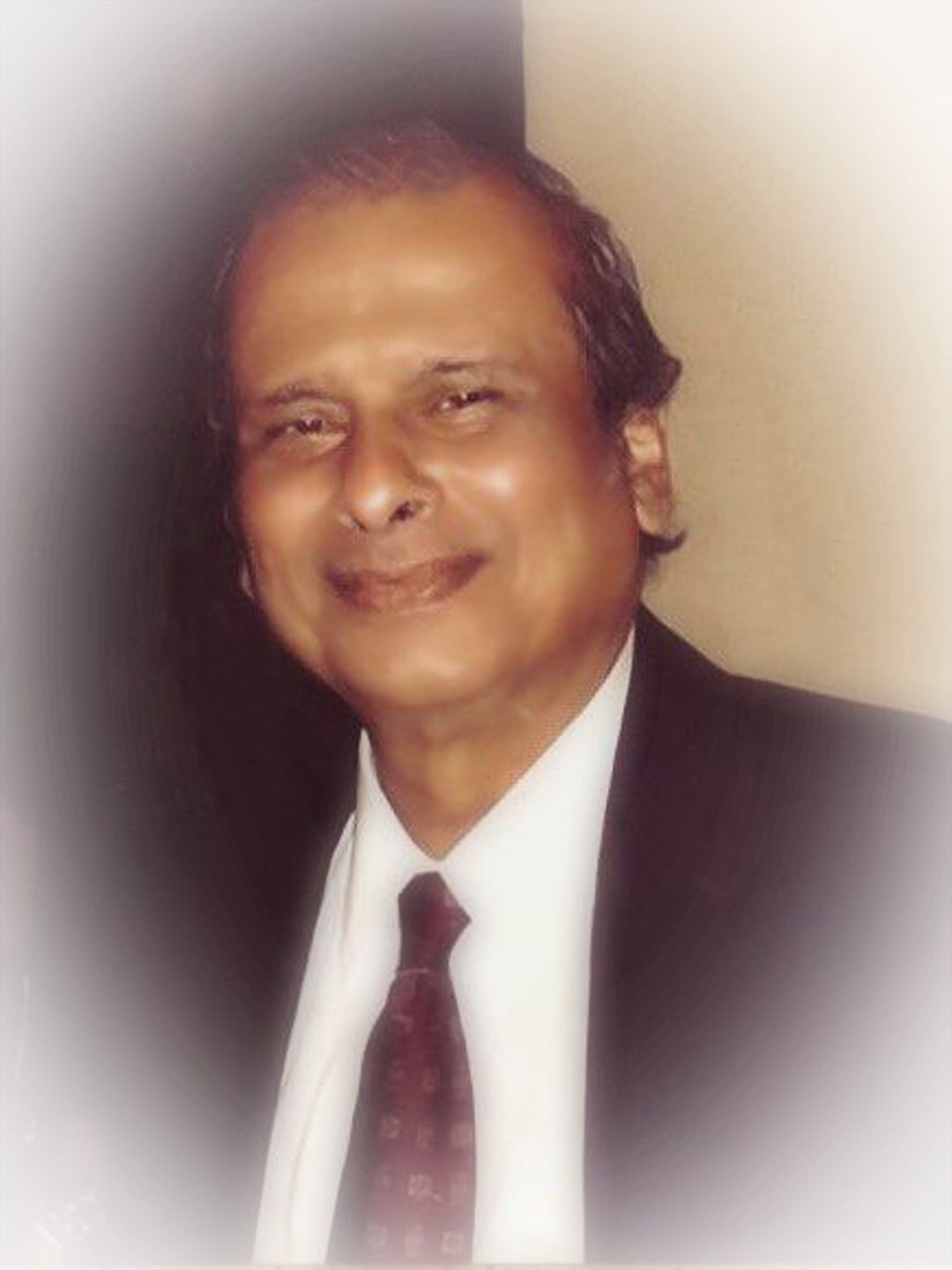 In the mid 1980s Mr Anwarul Amin, then the General Manager of BCCI in Bangladesh, was chosen to head the bank's representative office operations in China, with his varied banking experience and his success in having established BCC in Bangladesh as the leading foreign bank.
In the mid 1980s Mr Anwarul Amin, then the General Manager of BCCI in Bangladesh, was chosen to head the bank's representative office operations in China, with his varied banking experience and his success in having established BCC in Bangladesh as the leading foreign bank.
Mr Amin was already known to Mr Agha Hasan Abedi, BCCI President before joining BCCI, when Mr Abedi when Mr Abedi, was President of United Bank Limited Pakistan (1958-1971) and unsuccessful in persuading Mr Amin to join United Bank.
Graduating from the Institute of Bankers while training with Westminster Bank in England at the age of twenty-one, Mr Amin started his banking career with the Muslim Commercial Bank in Pakistan in 1955. He went on to work at National Bank of Pakistan and the Industrial Development Bank of Pakistan. With Bangladesh's independence in 1971 he took on the crucial task of opening the first branch of a Bangladeshi bank in the global financial capital, London. He was General Manager of Bangladesh Shilpa Bank (BSB) that was established for accelerating the industrial pace of Bangladesh, and Deputy Managing Director of Uttara Bank, one of the largest private Banks in Bangladesh when he set up the bank's office in London. After moving to BCCI, Mr Amin successfully positioned BCCI as the top foreign bank in Bangladesh in terms of deposits and handling foreign trade business.
However, and much more important in choosing Mr Amin to take over from Mr Sultan Khan as BCCI's chief representative in China, was Mr Amin's long-standing dealings with China. He was President of Bangladesh- China People's Friendship Association (BCPFA) and already enjoyed personal relations, receiving senior Chinese officials visiting Bangladesh, and arranging for Bangladesh delegations visiting China to meeting important officials.
Opening of BCCI Beijing representative office
Bank of Credit and Commerce International (Overseas) Limited (BCCI) set up its first China representative office in Beijing in April 1982.
.png)
A new era in Third World relations
In late November 1982, a BCC team headed by BCCI President Agha Hasan Abedi, with colleagues from the ban's central office London and the Far East Regional office, arrived in Beijing to formally inaugurate the BCCI representative office in Beijing.
BCCI and China both had a deep commitment to the Third World and this shared understanding was to be the basis of future co-operation. Months of hard work, coupled with a sensitive understanding of the transition through which China was passing, paved the way for the three-day visit.
The China that greeted BCCI so warmly was very different from the image often portrayed by the media dominated mainly by journalists of English language newspapers published in the West and in the then British colony of Hong Kong.
The reception by officials from the Bank of China at the airport indicated the warmth of hospitality that the BCC team members met wherever they went. As one member put it: "As soon as we set foot on Chinese soil, the Chinese people became highly individualistic and so unlike the homogeneous image sometimes created in the media!"
China was in transition into the twenty-first century, already prepared to leap into the world of high technology. In China's new Five Year Plan the balance of trade surplus was to be used for Third World exports, while foreign investment would play a large role in the development of the energy, transport and tourist industries.
China's increasing involvement in international affairs heralded a new age. Chinese involvement in the Third World would be the stimulus for worldwide economic recovery.
To record all the individual events during the visit would take up many pages. The pictorial study presented below would convey the mood of joy and excitement.
A grand event hosted by the BCC President was held in the Banquet Hall of the Beijing Hotel to inaugurate the opening of BCCI Representative Office. The Banquet Hall has a capacity for 5,000 guests.
Mr Zhao Ziyang, the third Premier of the People's Republic of China was the chief guest, and the opening was done by the President Bank of China. Among the people who attended the event were important officials of the Chinese government, the central bank and state-owned banks and corporations. This was at the beginning of "reform and opening-up" of China in the 1980s with the emerging free market.
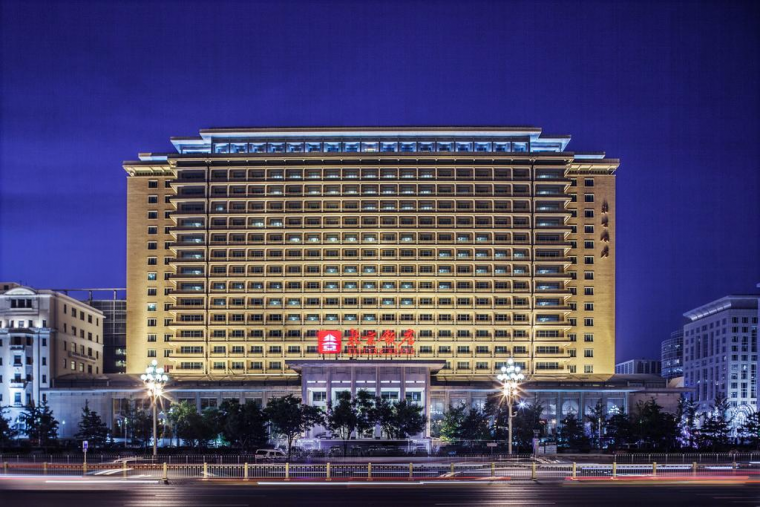
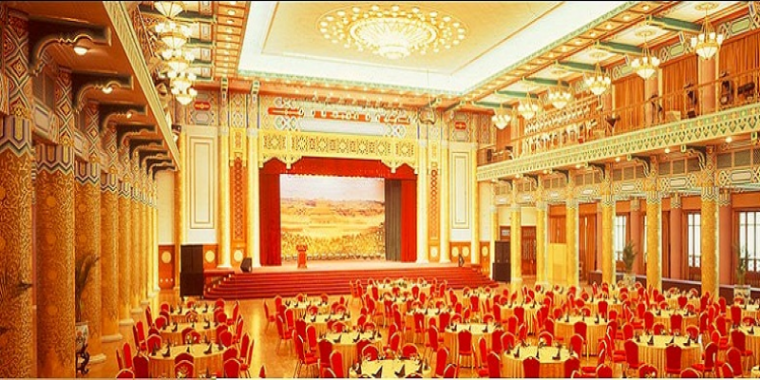
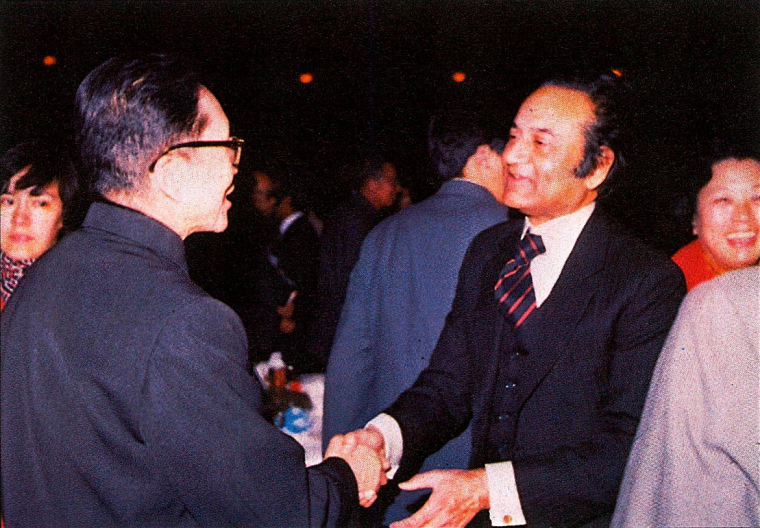
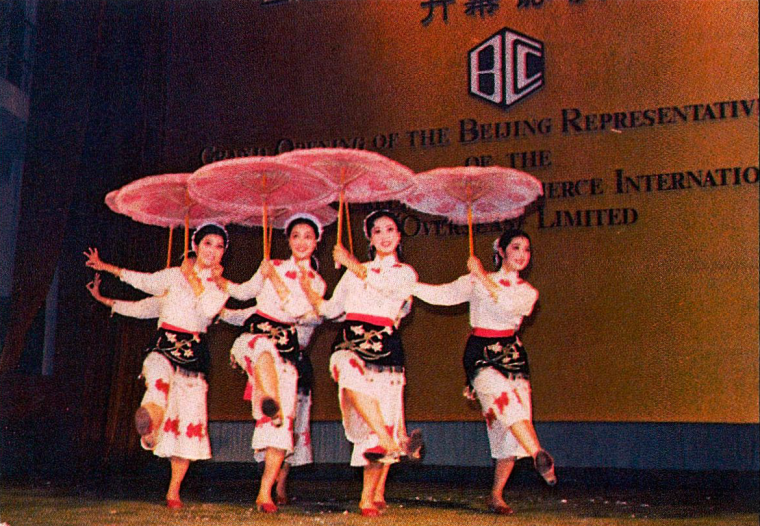
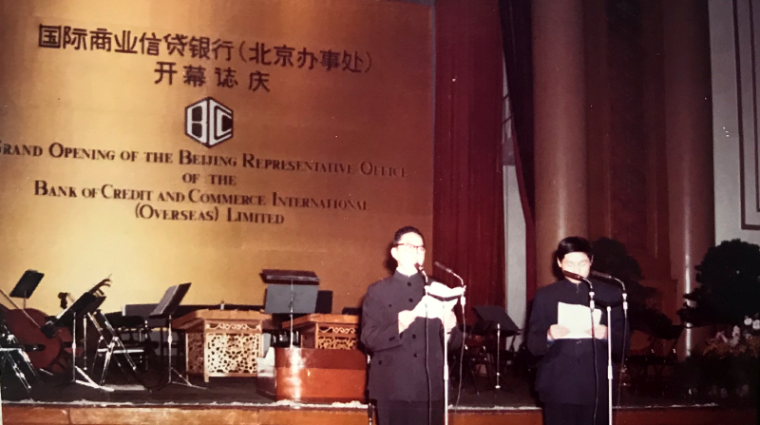
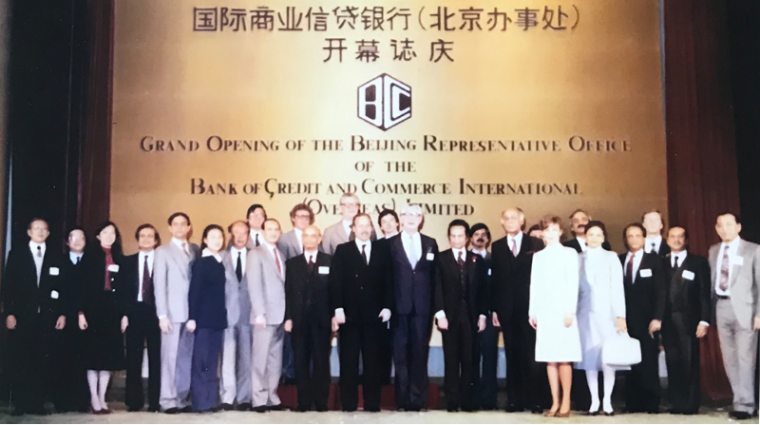
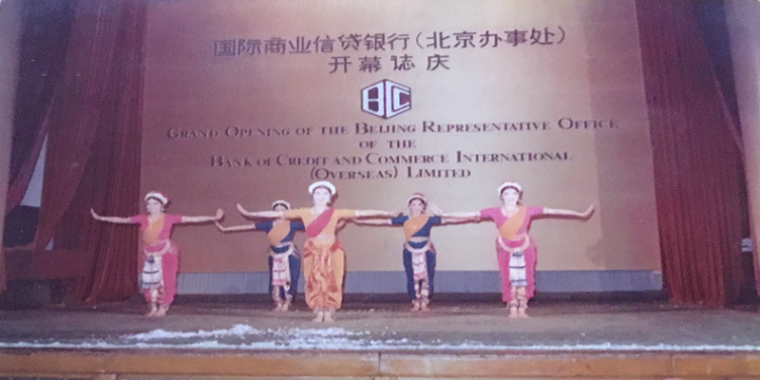
BCCI Beijing office
The first office of BCCI in China was set up as a representative office in an old 1920’s house at 9 Chongwenmen Xidajie in the Foreign Legation Quarters in Beijing reserved for foreign diplomats. The house was previously occupied by the Belgian Mission in China.


The ground floor was used for the office to accommodate up to 10 staff. The bedrooms upstairs were used as residences for BCCI international officers assigned to work in China. In order to serve the bank's rapidly growing in China BCCI Beijing had to move into larger premises, few times. The last and the largest was at the Jing Guang Centre, then the tallest building in Beijing until office moved to a new building offering larger workspace.
.png)

Forward planning
The BCCI President along with the General Manager BCCI Far East Region and China division in Hong Kong had anticipated that Hong Kong would one day become a part of China and considered Hong Kong in particular an important element in BCCI’s long-term approach to relations with China.
The activities of BCCI representative offices within China were complemented by a presence of 30 branches in Hong Kong and one branch in Macau both of which territories subsequently merged with the mainland.
Because of the restrictions on foreign banks opening branches in mainland China, BCCI first established a finance company (BCCI Finance International) in Hong Kong to benefit from Hong Kong’s location as an international centre of business and trade and as a gateway to mainland China.
In 1980 BCCI acquired a major base in Hong Kong. BCCI bought the Hong Kong Metropolitan Bank (known locally as Metro Bank with 7 local branches and later taken over by BCCI and renamed BCC Hong Kong). Mr Louis Saboulle, former head of Bank of America in Hong Kong and a trusted person of China, was appointed Managing Director by BCC. Metro Bank also serviced a major part of China's international business that was being mobilised by BCC Beijing and later by other representative offices of BCC in China.
In 1984 Bank of Credit and Commerce International (Overseas) Limited (BCCI) in the BCC Group was granted a commercial banking licence, the second foreign bank after Hong Kong Shanghai Banking Corporation (HSBC), to establish a branch in the Shenzhen Special Economic Zone, one of five such economic zones established by China to attract foreign investment.
In keeping with the spirit of BCCI to be seen as an international bank with a local presence and to develop close relationships with Chinese-speaking employees of BCCI and clients, BCCI officers from abroad assigned to work in China were required by the bank to undertake Chinese language training.
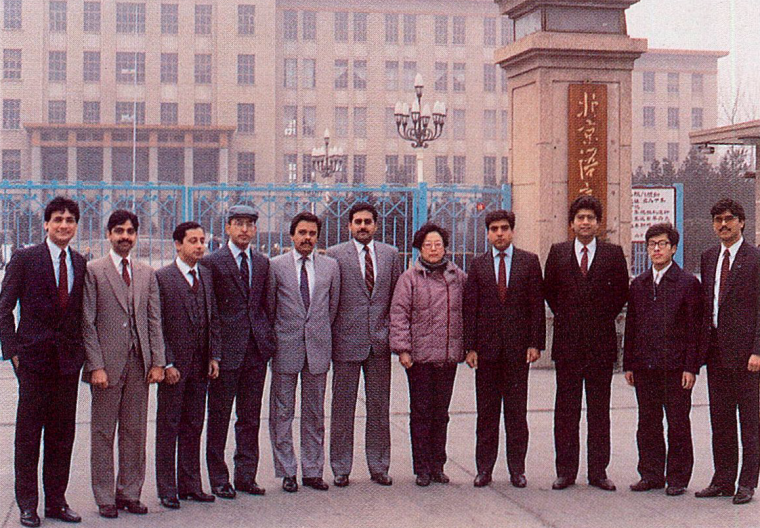
Activities of BCCI Beijing representative office

As the national capital, Beijing housed all the most important governmental and political institutions in the nation. These included the National People’s Congress, constitutionally the supreme organ of state power; the State Council, the highest executive organ of the state; and the various administrative departments under the jurisdiction of the State Council, including the ministry in charge of finance.
The central bank, the People’s Bank of China, and head offices of China’s four major state-owned banks and four of the largest state-owned engineering and construction companies were in Beijing.
The early activities of BCCI Beijing, with the first BCCI presence in China in 1982. were focused on relationships with key officials in China, liaising with BCCI Far East Regional Office in Hong Kong and Central Office in London, and extending assistance to the large Chinese state-owned enterprises in countries where BCCI local branches provided banking services as well as logistical support.
After Mr Anwarul Amin took charge as BCCI chief representative and general manager for China the emphasis was on generating business for BCCI network of branches through developing and maintaining relationships with the Central Bank, state-owned Chinese banks and corporations.
In a conversation with Mr Amin in 2019, many years after BCCI's controversial closure in 1991, he recalled a visit of Mr Agha Hasan Abedi, the bank's President, to China a few months after he (Mr Amin) took charge. He was taken aback with Mr Abedi's remarks at a meeting in BCCI Beijing office while reviewing BCCI's activities in China. At the time BCCI Beijing small office was in the old 1920’s house. In addressing Mr Amin, Mr Abedi remarked, "Mr Amin, you do not have any vision. In a country of 1.2 billion people, how do you justify having a tiny office with a total staff of 10 which includes two drivers? How do you justify BCCI's presence in a country which such huge market potential? You should have at least 100 people."
- In conversation with Mr Anwarul Amin of BCC China: audio 2019
While Mr Amin Mr Abedi's remarks directed at him that appeared to criticise his efforts, it was typical of Mr Abedi's management style to provoke a natural first response from those displayed a lacked real vision and the desire to see the potential beyond normal limits of ordinary human beings. Mr Amin's immediate response was, "Where can I get the people, from where?" Mr Abedi always had a ready answer and would have provided more people from other BCC locations, if only Mr Amin had the vision to make such a requested first.
Mr Abedi had clearly understood the huge potential in China beyond that others had not considered and did not have the vision to recognise that the huge opportunities knocking at the door of BCCI could not be taken up with a tiny office and a small team.
BCCI Beijing's last office was a larger modern office on the 33rd floor in Jing Guan Centre, and accommodated over 70 people to handle the ever-increasing workload and the pressures in managing BCC's growing relationships and close monitoring of a high volume of business initiated in China and serviced by BCCI branches outside China.
All the staff met daily to report and update on their individual progress and discuss team efforts to achieve targets and shared goals.

BCCI Beijing Representative Office
Jing Guan Centre
Hua Ji Lou, Chang Yang Qu
Beijing
Tele: (861) 501 5111 / 501 5112-5
Fax: (861) 501 3007
Telex: 210490 BCCI CN
People’s Bank of China (central bank)
The BCCI team in Beijing and the chief representative and general manager for China was in regular contact with the senior management of the People’s Bank of China (PBC) in Beijing, the central bank, composed of the governor and a certain number of deputy governors to offer assistance of BCCI and its international banking services to the central bank and other Chinese banks. After the opening of BCC branch in Shenzhen the branch manager was directly responsible for relations with the office of PBC in Shenzhen.
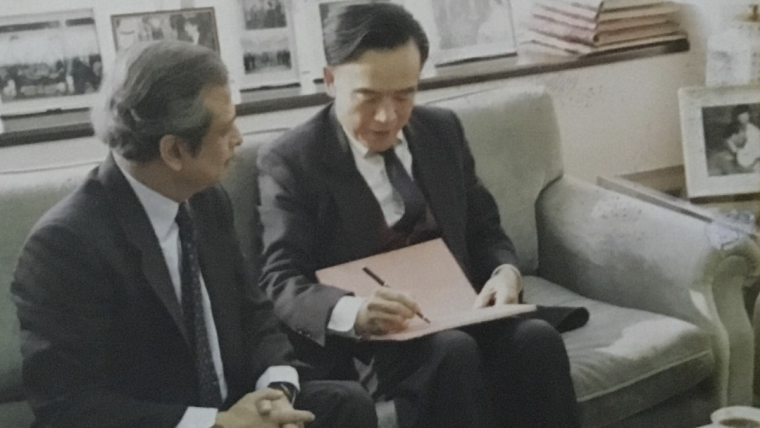
BCCI Beijing arranged meetings with senior officials at the central bank for the BCCI President, the general manager of BCC Hong Kong regional office and other BCCI officers visiting China to discuss specific business. An example was the visit by Mr Zafar Iqbal, managing director, and Mr Bashir Tahir, general manager, BCC (Emirates), who travelled to China in 1986 to explore the possibilities of developing business between the United Arab Emirates (UAE) and the People's Republic of China.
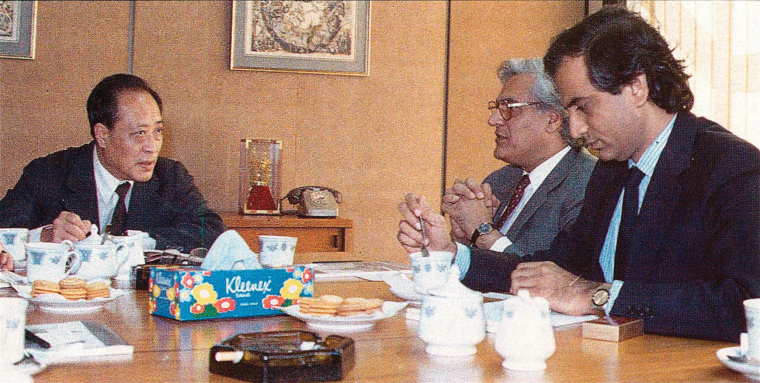
At the request of the central bank BCCI Beijing arranged training programmes in international banking and foreign trade and study tours in Europe for officials of the central bank and the Chinese banks. This was at a crucial time after China introduced economic and financial reforms in the 1980s.
In 1986 officials from People's Bank of China (PBC), Shenzhen office visited Paris, France. They were Mr Luo Xian Rong, general manager, Mr Wu Wen Fa, manager, foreign exchange administration department, Mr Han Long Nian, deputy manager, finance administration department, and Mr Li Nan Feng, office manager. During their stay BCCI Paris organised their meetings with people from the Association Francaise des Banques (AFB), the Bank of France (central bank), the French stock exchange and various French companies working in China.
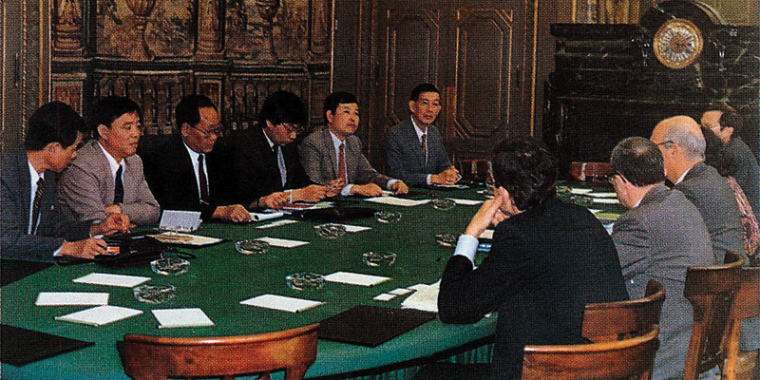
The officials attended presentations on the French banking system, by Mr Charies Comut, banking affairs manager of the AFB; the regulation system of the Bank of France; and the stock exchange and financial market, by Mr Marc Outin from the foreign affairs department of the Paris Stockbrokers' Association. They also had detailed discussions with French companies on investment possibilities in China, fund repatriation problems, local regulations and other topics. For the delegates' entertainment.
State-owned banks and corporations
The move by China in the 1980s to an open-door economic policy ushered in a period of high economic growth and with it the demand for foreign capital, technology, and management. Apart from the Bank of China, the other state-owned banks, as well as the state-owned corporations, had almost no exposure to handling international business and any understanding of the complexities in foreign trade, dealing in foreign exchange, and issuing letters of credit and bid bonds and performance bonds that were required by China's state-owned to secure contracts for major engineering and construction projects in developing countries.
Bank of China, the only bank with a presence outside China, the significant branch was in London, handled all the international banking business of China and it was never considered necessary at the time for the other Chinese banks to also do so. However, with the economy opening up, the Chinese banks, as well as, the large state-owned corporations were keen to undertake international business. Their employees needed to first have the knowledge and technical skills. As it appeared the Bank of China wanted to continue to monopolise the market and did not appear keen to train the other Chinese banks in international banking, therefore, BCC unhesitatingly agreed to provide this training. It led to BCC becoming more deeply involved with China and a trusted friend of China.
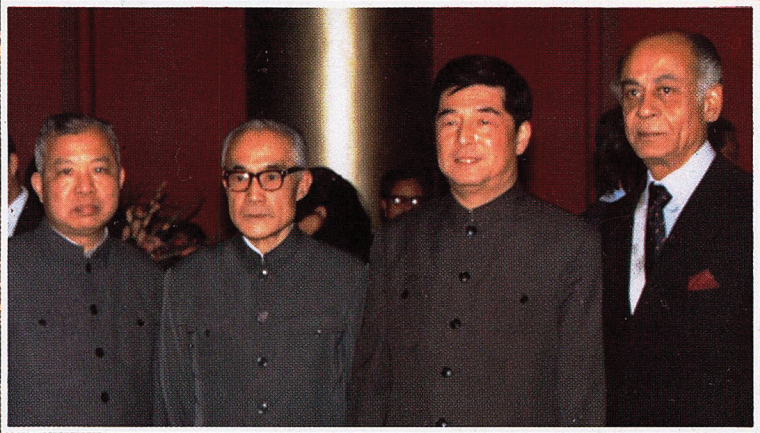
There were four large China’s state-owned engineering and construction corporations eager to enter the market in the developing countries in almost all fields of infrastructure and with the training by BCCI, they have become recognised as global brands and successfully expanded their work outside of the protected borders of their home country.
With a strong local presence in the Third World and also in some countries with whom China had not yet established diplomatic relations such as South Korea, BCCI was well-positioned to extend assistance to all state-owned corporations both with their banking requirements outside China and key local contacts to bid for major projects, in areas such as road and bridge construction, the laying of railway lines and port and harbour development.
BCCI organised visits by Chinese corporations to Middle East; almost all the important Chinese corporations having their offices in the United Arab Emirates banked with BCC.
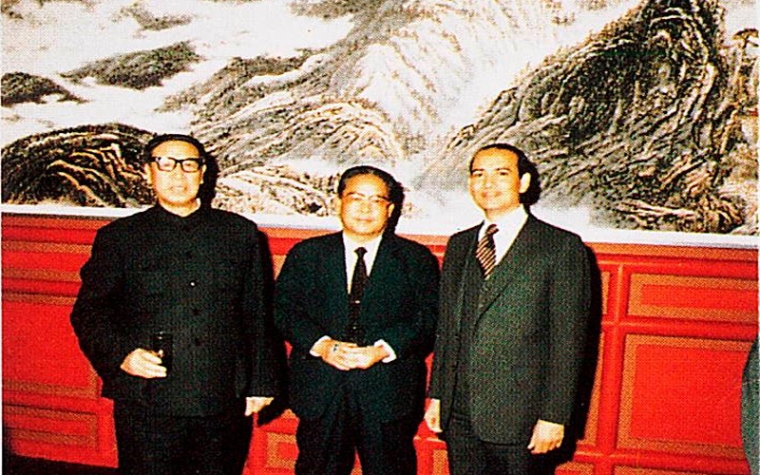
While BCCI Beijing (and other representative offices set up later in China) did not conduct any form of banking business, the key role BCC played was in building, maintaining and expanding its relations with important officials at all levels in the central bank, state-owned banks and corporations, and targeting the emerging business and investment opportunities through these contacts.
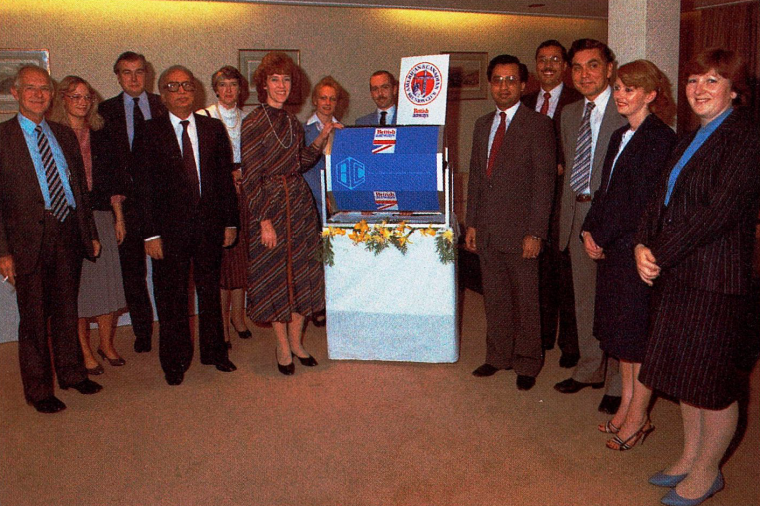
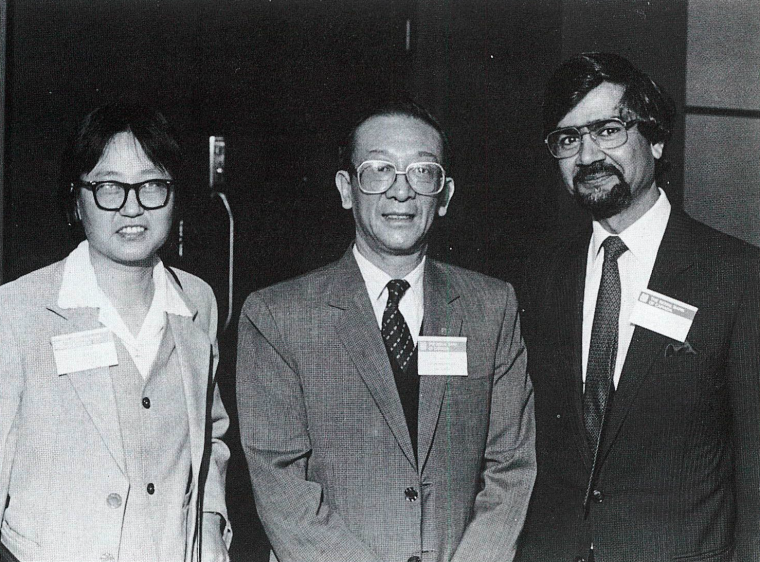
The important banking products and services that BCCI representative offices offered outside China included:
- Issuing letters of credit for state-owned companies by BCCI branches outside China
- Arranging confirmation of foreign letters of credit issued by state-owned Chinese banks, by BCCI branches outside China
- Arranging bid and performance bonds to be issued by BCCI branches for state-owned corporations for contracts outside China
- Buying or selling foreign exchange for state-owned banks and corporations
- Investment of funds in foreign currency for state-owned banks and corporations
- Opening foreign accounts of state-owned banks and corporations with BCCI branches.
Record of business generated for BCCI branches outside China
The practical work involved in serving the state-owned banks and corporations required BCCI Beijing to conduct research into China’s economy, undertaking credit assessments, obtaining approvals for credit lines for issuing bid bonds, performance bonds and letters of credit mainly through BCC Hong Kong branches for Chinese companies bidding for projects abroad, closely monitoring the transactions handled by BCCI branches globally and preparing reports upon request.
Almost all businesses generated by BCCI in China was non-funded business, trade-related and self-liquidating and earned commission income for BCCI taking only sovereign risk. In addition, the Chinese banks, including the People's Bank of China (the central bank) and the Chinese corporations regularly placed deposits with BCCI and traded in foreign currency with dealing room in BCC Hong Kong.
The relations with the Chinese banks and corporation also offered a unique opportunity for BCCI branches outside China handling their dealings with large international companies. They seized on every opportunity to establish their own relationships with those international companies and solicit their business, with many ending up as clients of BCCI.
Foreign bankers and dignitaries visiting China
Foreign bankers visiting China were aware of BCCI's growing presence in China and good relations that BCCI enjoyed with important officials in the government. They called on BCCI Beijing representative office regularly to gather information on China’s economy and investment opportunities.
BCCI Beijing office was also visited by foreign dignitaries and other senior officials, among them were the Private Secretary to the Governor of Bank of England UK, Sir James Callaghan, Member of Parliament and former prime minister of UK (also a trustee of Cambridge Welfare Trust, set up with funds provided initially by BCCI), and Mrs Rosalynn Carter wife of Mr Jimmy Carter, former US President as Chairman of Global 2000 project with which BCC was closely associated.
Sir James Callagan (later Lord Callaghan) was on a visit to China in November 1986. The main purpose of his visit was to study the possibility of arranging foreign funds for the developing of rural industries. Along with Mr Agha Hasan Abedi, President BCCI, Sir Callaghan was a trustee of the Cambridge Commonwealth Trust established in October 1982 to encourage students from Commonwealth countries to study at the University of Cambridge in UK. They were both also trustees of the Zimbabwe Cambridge Trust established in February 1987 to enable young Zimbabweans to pursue postgraduate studies at Cambridge.
Prof Fei Xiaotong, Vice Chairman CPPCC (a political advisory body of China) who had accompanied Secretary General Hua Bang, during an earlier visit to UK met Sir Callaghan to explain his ideas on the subject. Prof Fei Xiaotong had invited Sir Callaghan to see for himself the prospects of developing such schemes. Sir Callaghan later discussed the subject with Mr Agha Hasan Abedi, BCCI President who agreed to send BCC officials to accompany Sir Callaghan for making an initial survey for possible future involvement of the bank with these schemes.
.png)

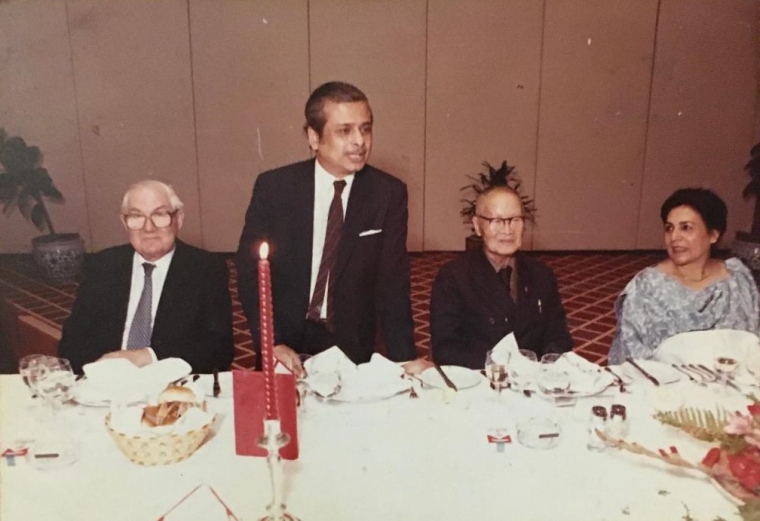
.png)
BCCI Beijing office was an invaluable part of BCCI’s charitable work in China through the Global 2000 initiative of former US President Mr Jimmy Carter and BCCI President Mr Agha Hasan Abedi and providing logistical support during their visit to China.

BCCI's increasing role in China
BCCI’s activities in China went beyond just marketing BCCI's international banking services. China was considered the leading and largest developing countries grouped as the Third World. BCCI was founded by Agha Hasan Abedi to essentially assist the people of the Third World.
In 1978 the Third World Foundation was established as a charity in London in association with BCCI. The foundation was funded by BCCI and Mr Abedi was the Chairman of the Board of Trustees.
In an interview that was broadcast on BCC World Service radio in 1983, Mr Abedi spoke about his project to establish a Third World Bank to provide short-term emergency loans for the needy countries of the Third World. It would be different from the World Bank in its approach to lending. The project could not be implemented due to indirect pressure reportedly of the IMF/World Bank and western countries on the developing countries who had expressed interest in the project. However, building on Mr Abedi's idea China was behind the establishment of the New Development Bank in 2014 by the BRICS countries to mobilise resources for development projects in BRICS (Brazil, Russia, India, China, South Africa), emerging economies and developing countries.
BCCI Beijing would regularly liaise with BCCI branches outside China to extend all possible assistance locally to Chinese delegations during their official visits to countries where BCCI had a local presence.
Africa
In 1982 when Chinese Premier Zhao Ziyang travelled to Africa to seek new links and his stopover included Kenya, Egypt, Zambia and Zimbabwe BCCI was available to provide assistance.
USA
In 1986 BCCI New York held a reception for the China delegation headed by Mr Li Hao, Vice-Governor Guangdong Province and Mayor of Shenzhen when they visited the USA. The purpose of the reception was to introduce Mr Li Hao to senior executives of multinational companies, diplomats, Federal Reserve officials and representatives of New York City Hall and the Chamber of Commerce. Mr Li Hao was full of praise for the assistance given by BCCI to his delegation. In his speech he said he was greatly encouraged to have friends such as BCC. Mr Li Hao and his colleagues also visited Houston, Texas, where BCCI again introduced the Chinese delegation to senior managers from large corporations. Both receptions formed part of BCC's desire to encourage and develop trade between the US and China.


United Arab Emirates
In 1987, two Chinese delegations visited the UAE. The first was a trade delegation from the Muslim autonomous region of Xin Jiang Province, led by their Governor. The second was an investment delegation from the Ministry of Foreign Economic Relations and Trade of China. BCC Emirates not only organised these visits and successfully coordinated meetings with various government bodies, institutions and private enterprises, but also held receptions in Dubai and Abu Dhabi and invited important officials and businessmen. The visits were the first of their kind and were very useful in building up business relationships between the UAE and the People's Republic of China.
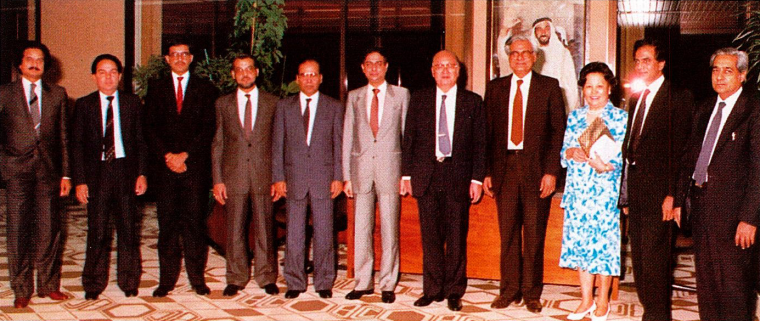
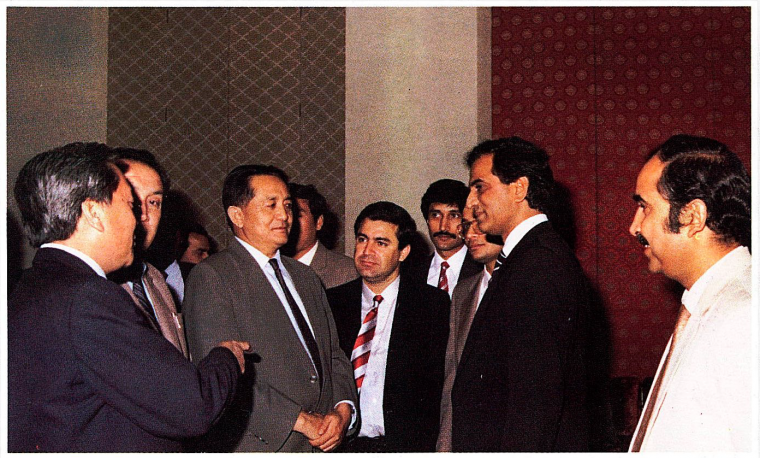
In and around China
The BCCI President, the General Manager of BCCI Far East Region and officers of China Division in the Regional Office in Hong Kong would visit China regularly for important meetings arranged by BCCI Beijing with Chinese officials.
- Record of relationships maintained by BCCI Beijing Representative Office
The chief representative of BCCI in China and BCCI President and other senior officers from BCCI Far East Region in Hong Kong visiting China shared information with Chinese government officials, discussed Third World problems, and explored the potential for China as an aspiring leader of the Third World to invest in the developing countries.
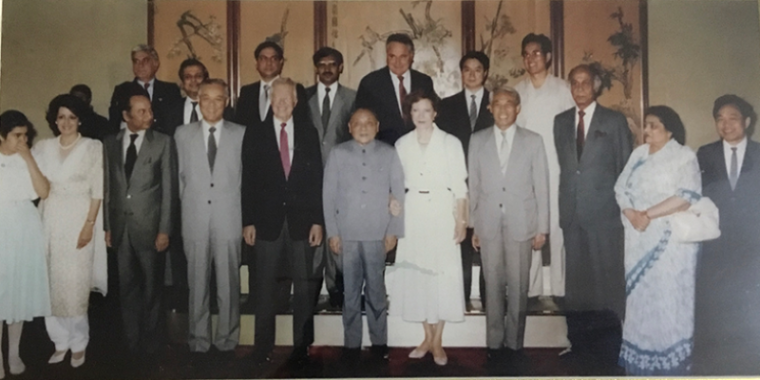
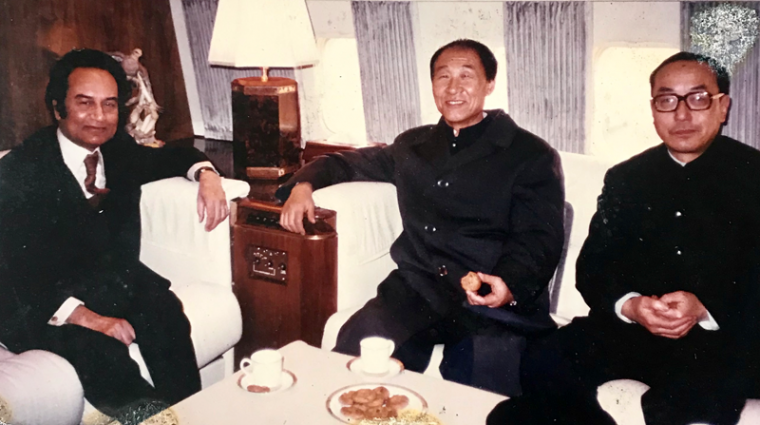
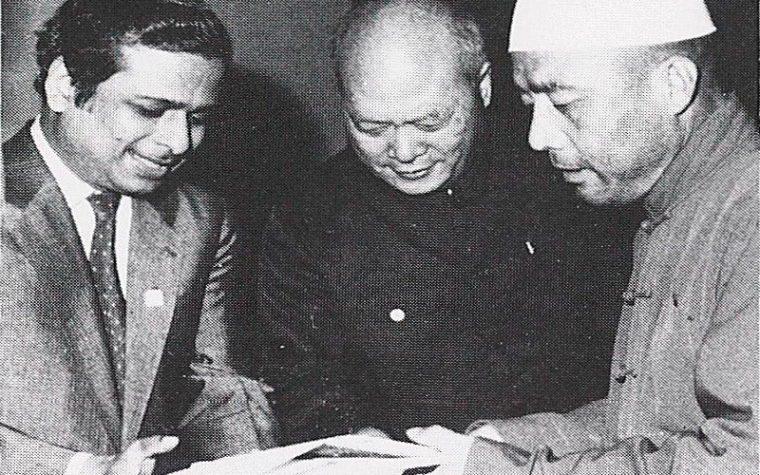
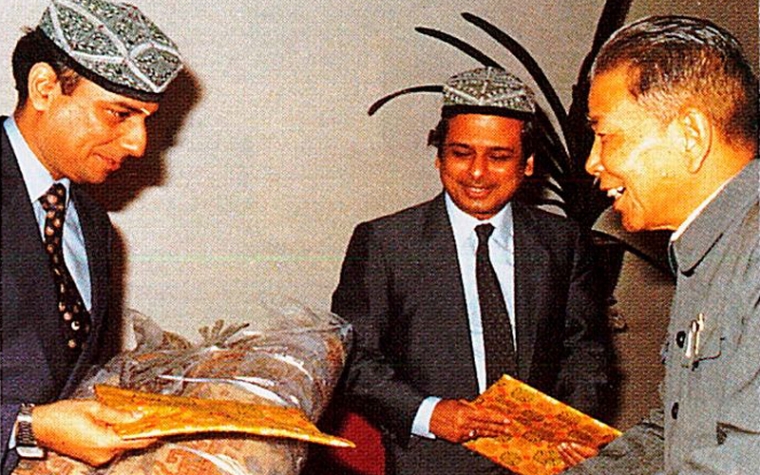
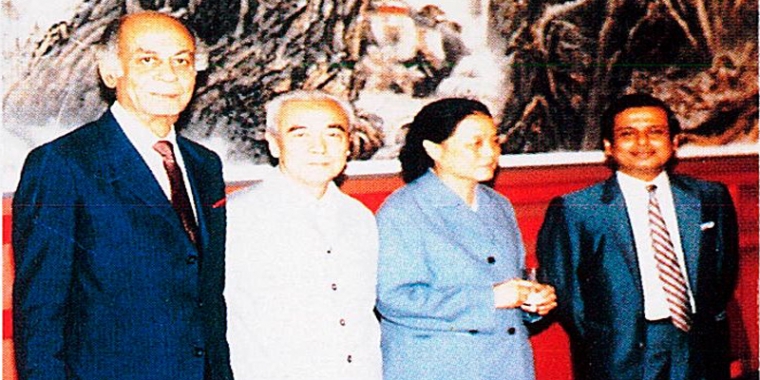
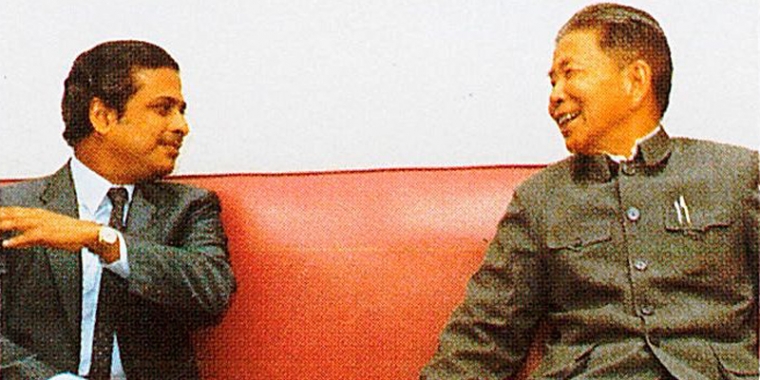
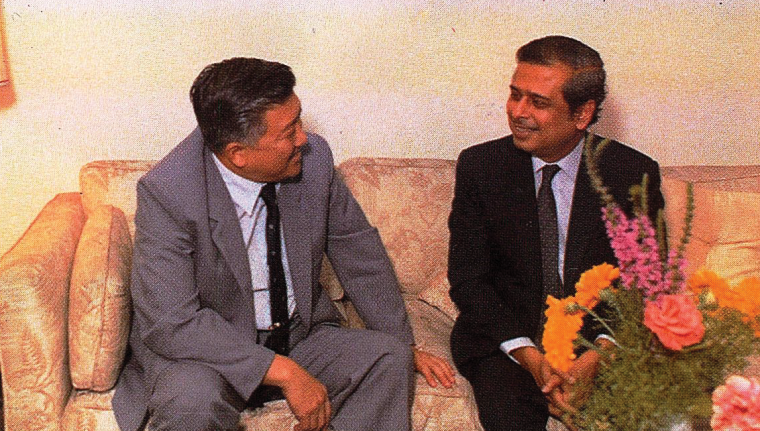
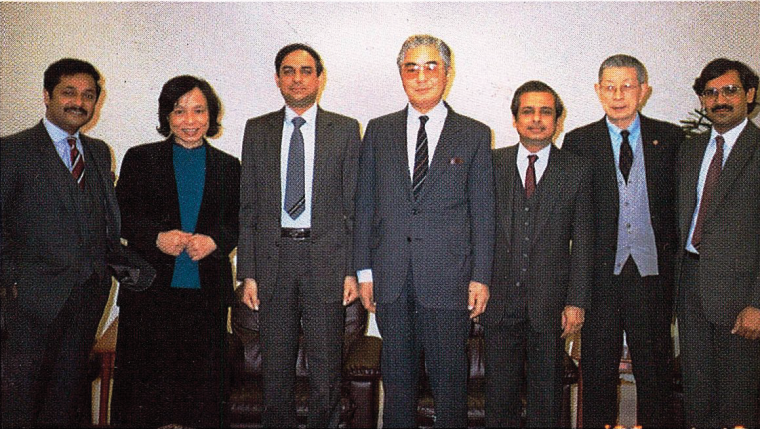
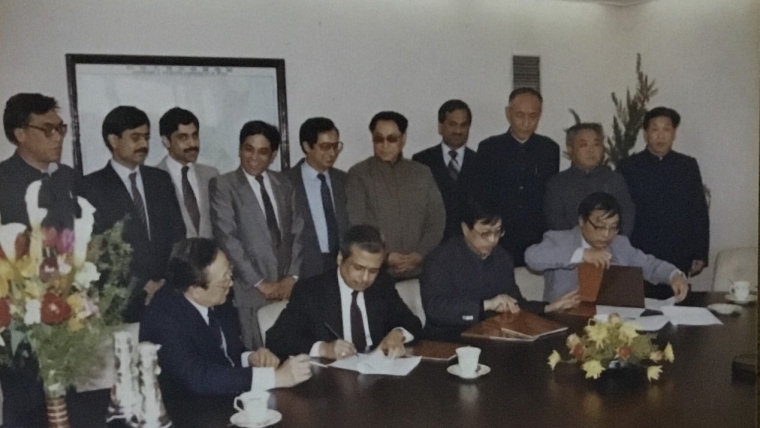
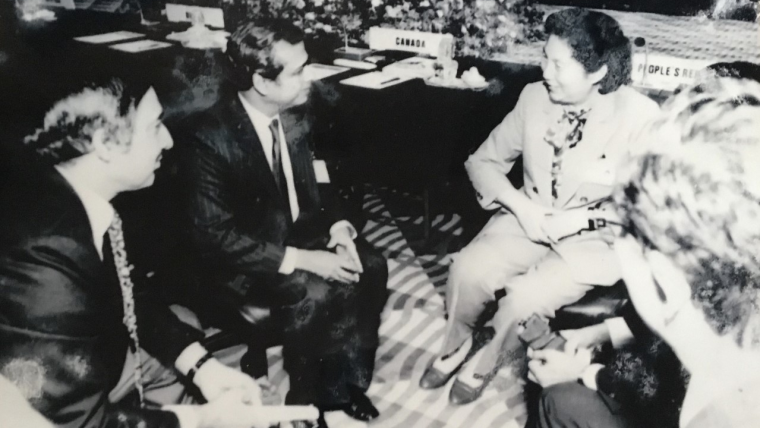
Following BCCI President Mr Agha Hasan Abedi's suffering a major heart attack and undergoing transplant operation in 1988, his health condition did not permit him to continue with BCCI. However, BCCI maintained the close relationship that Mr Abedi always enjoyed with China. In 1989 Mr Swaleh Naqvi, the BCCI chief executive visited China accompanied by senior officials from BCCI Hong Kong Regional Office and Central Support Office in London.
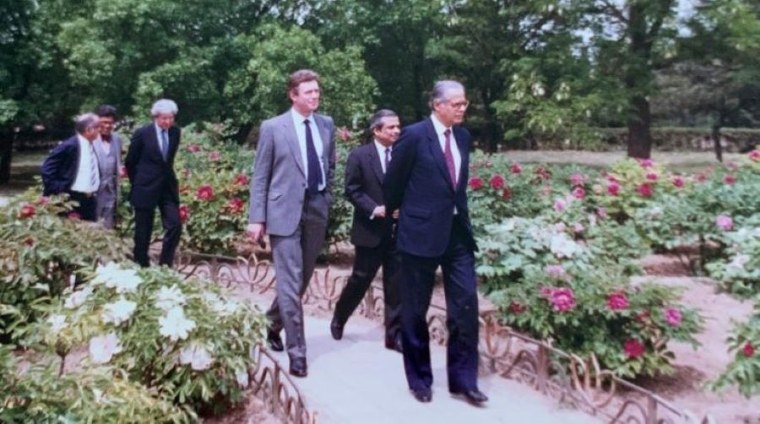
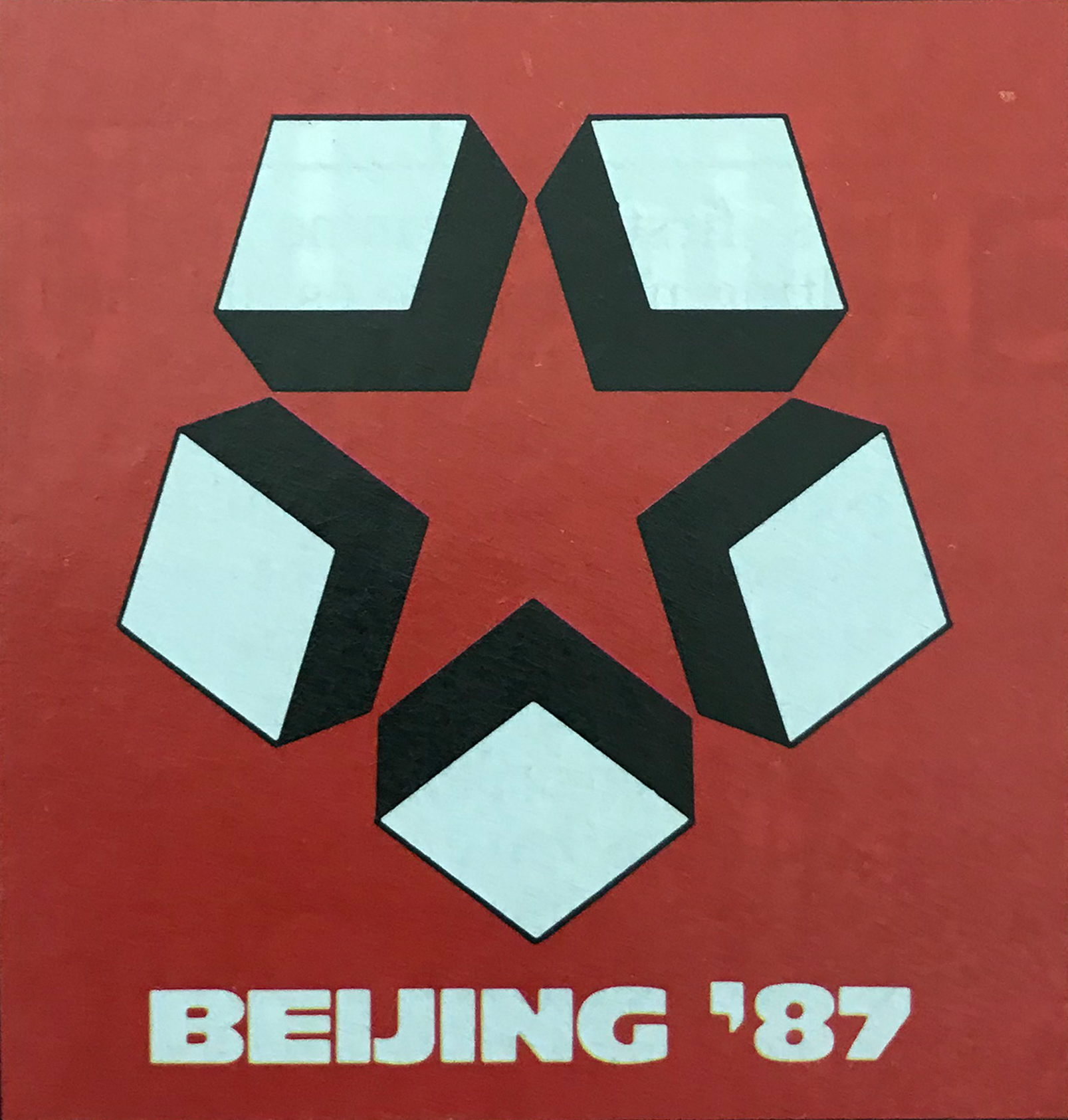 Grand Advertising and Marketing Conference
Grand Advertising and Marketing Conference
After the Chinese Communist Party takeover in 1949, the government gradually eliminated commercial advertising in the belief that a centralised socialist economy did not need advertising. During the Cultural Revolution (1966-1976), almost no commercial advertisements existed, except for limited commercial information about exports to foreign countries (Chen, 1991).
China officially announced a resumption of commercial advertising in 1978 after the Third Plenary Session of the Eleventh Central Committee of the Chinese Communist Party. At this meeting, China’s paramount leader, Deng Xiaoping, declared that China would shift from a political orientation – focusing on class struggle – to a more pragmatic approach - centered on economic reforms and the opening of the economy to global capital.
Advertising was emerging as a boom industry in China. Maligned as a capitalist tool during the cultural revolution, it has become a vibrant feature of the open-door policy, providing China with accurate information about the availability of foreign technology and assisting managers in carrying out ambitious development plans. Prime time television advertisements promote mining equipment or USA's McDonnell Douglas aircraft.
In the 1980s Chinese advertisers used hard-sell advertising strategies, focusing on product information and production processes (gates of factories, machinery, diligent workers, their awards, etc.). Chinese advertisement professionals demonstrated a strong desire to learn from foreign advertising agencies.
The opportunities afforded international advertisers were unparalleled in a growing economy. To add to this, China's export advertising rose by more than 86 per cent in 1984. There was a wide variety of highly effective advertising media in China, the most popular were newspapers and magazines. Television advertising was run on both a national and reginal basis.
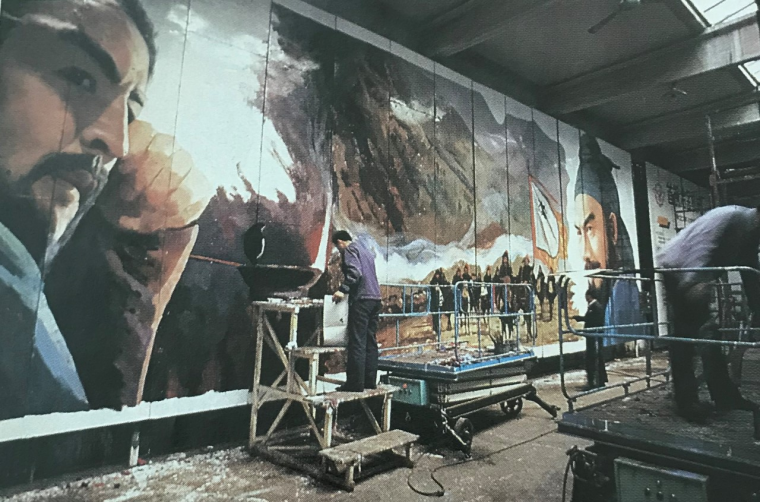
Colourful billboards and flashing neon signs brightened up many a Chinese town. These long-term forms of advertising served to familiarise large numbers with brand names and products. There were already 7,000 posters and billboard sites.
This upbeat momentum was best reflected in the hosting of the first-ever international advertising and marketing congress (Beijing '87) in the Great Hall of the People. The congress was jointly organised by the Chinese national advertising association for foreign economic relations and trade (CNAAFERT) and South magazine, a publication sponsored by the Third World Foundation which was financially assisted by BCCI and had the personal support of China's Premier Zhao Ziyang.
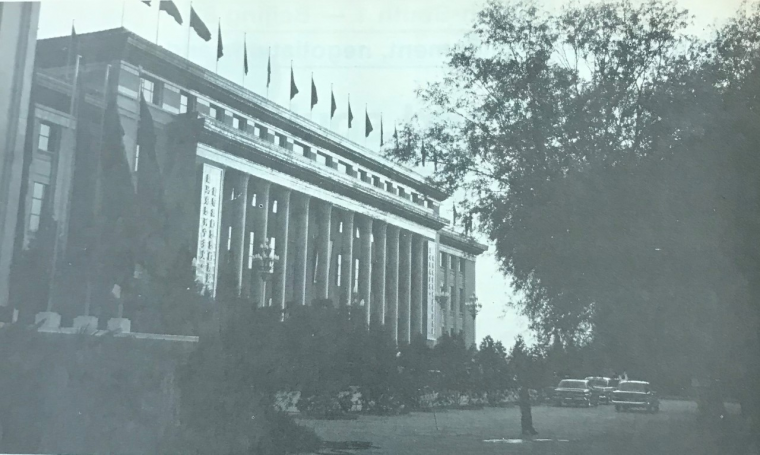
BCCI Beijing was actively involved in making provisions for the success of a grand conference on advertising and marketing in China’s Great Hall of the People to bring together Chinese organisations and Foreign advertising agencies who were urging their global clients to enter China right after the country opened its door to the outside world.
The five main objectives at Beijing '87 that took place over five days were:
- To learn how the latest North American, Japanese and European advertising, marketing and communication techniques can best be adapted to meet the needs of developing countries;
- To enable the Chinese to establish contact with local, national and international advertising, marketing, media and other companies;
- To enable the Chinese advertising industry to outline its potential benefits to foreign exporters interested in promoting their products in China while, at the same time, explaining the type of assistance they are looking for in promoting their products overseas;
- To foster growing business opportunities between the developed and developing nations; and
- To encourage two-way trade between China and the rest of the world.
The arrangements made by BCCI Beijing with blown up images of the speakers on a screen at the back and sides of the centre stage unprecedented and totally new for Communist China and projecting the Chinese market on to the international scene. As a result, many professionals working at foreign advertising agencies were constantly invited to give talks about foreign advertising and for Chinese advertisement professionals to provide further learning about the newest advertising practices.
Leading foreign advertisers in China included Citizen, Sony, Xerox, Rado, Minolta, Kodak, Canon, Isuzu, Volkswagen, Pepsi, Boeing and Philips. But there were pitfalls which the Beijing '87 organisers conveyed to participants. Equally, for Chinese traders, some brand names tended to have a revolutionary flavour - Hero pens, for instance, and Victory Song television sets. Or they may have had an animal theme - White Cat washing powder, White Rabbit sweets.
As Xu Xin, chairman of CNAAFERT and co-chairman of the congress, said: "This congress promises to be the most business-like event of its kind in the world, for it is our desire to create the ideal platform to encourage the exchange of knowledge and experience between all those associated with the advertising, marketing and commercial industries around the globe."
The participants were also addressed by BCCI President Mr Agha Hasan Abedi, Chairman of the Board of Trustees, Third World Foundation. He referred to what he called a crusade for moral business, which in his view is something fundamental and, at the same time, pragmatic, in its real sense. Mr Abedi believed that every human activity has a moral basis and since trading, marketing and advertising are central human activities, individuals have a positive duty to examine their moral foundations.
 China at the 1988 Seoul Summer Olympics
China at the 1988 Seoul Summer Olympics
China competed in the 1988 Summer Olympics held in Seoul, South Korea held from 17 September to 2 October 1988.
At the time China did not have diplomatic relations with the Republic of Korea (South Korea), diplomatic relations between the two countries were formally established in the 1990s.
BCCI Beijing offered the support of BCCI Seoul branch to look after the China Olympic team during their stay in Seoul.
The China team of 273 competitors consisted of 149 men and 124 women, took part in 150 events in 25 sports.
159 countries participated; China ranked 7th on the table, with a total of 28 medals; 5 Gold, 11 Silver and 12 Bronze.
On return to China, the Olympic team heaped praises beyond belief in the way they were looked after by BCCI in Seoul. They felt that the branch was like an embassy of China. Team members visited the branch frequently to make telephone calls to their family in China and to seek assistance with any problems they faced during their stay.
South-South Conference 1983, Beijing, China
In 1983, the Third World Foundation funded by BCCI convened the conference in Beijing on South-South cooperation, which came to be known as South-South I Summit, in association with the Chinese Academy of Social Sciences (the premier academic organization and comprehensive research centre of the People’s Republic of China in the fields of philosophy and social sciences).
The conference brought together eminent Third World statesmen and scholars to China to meet in their individual capacities, for frank intellectual exchange on important issues relating to the social and economic development of the Third World. BCC ensured that the active involvement of the Chinese scholars in an intensive examination of the situation facing the South and the potential for China to assume the leadership of the Third World.
The inaugural session was addressed by China's Premier, Zhao Ziyang. He was invited by the Third World Foundation to present the Third World Prize for 1982 awarded to the International Rice Research Institute based in Philippines.
BCCI was second international bank licenced to operate in the Special Economic Zone of Shenzhen
China's banking authorities gave approval in 1984 to BCC to open a branch office of Bank of Credit and Commerce International (Overseas) Limited (BCCI) in the Shenzhen Special Zone, putting BCCI in second place in the foreign bank rush to open branches in China. Foreign banks would have a restricted role under regulations governing their presence in China’s Special Economic Zones (SEZs).
The approval followed the granting of permission, the first since the Communist rule began in 1949, for the Hong Kong Shanghai Banking Corporation (HSBC) to open a branch in Shenzhen. HSBC had a continuous presence in China since 1865, HSBC was well-positioned when, in the late 1970s, China started to open up to foreign investment again. In 1984, HSBC thus became the first foreign bank to be granted a banking licence in mainland China since 1949, for its branch in Shenzhen.
The news of BCCI being the second bank to receive a commercial banking licence was so momentous that BCCI approached the South China Morning Post, a Hong Kong based English-language newspaper since the British colonial rule, to publish the news. The newspaper at first declined to publish the news as it did not seem possible to them with their colonial mentality that a bank representing the Third World had obtained approval before many large and well-established western banks who had also applied. They sought confirmation from the central bank (the People's Bank of China). The central bank advised their rationale for granting BCCI the banking licence among with the first banks.
- Stop Press: Reprinted from Financial Times
- In conversation with Mr Anwarul Amin of BCC China: audio 2019
According to BCCI China's 's chief representative, apart from BCCI's 'good credit standing' and 'fine relations with China', there were other matters considered by the central bank in BCCI's case such as the bank was managed by professional bankers from the Third World who knew and understood the business in the developing countries and BCCI had many more branches in the Third World than any other international bank.
Without doubt the close ties that Mr Abedi had built with Chinese government officials and his commitment to China's development must have also played an important part in the decision of the People's Bank of China in granting one of the banking licence to BCCI to establish a branch in the Shenzen SEZ.
BCCI played a modest part in the implementation of Reform and Open-door Policy of China
A most significant event in BCCI's relations with China was the training arranged by BCCI at the request of The People's Bank of China (the central bank) to provide the higher skills and knowledge in banking supervision and basic skills in conducting international banking.
China’s banking reform was carried out within the broader context of China’s transition from a planned economy to a market economy. Prior to the beginning of the reform, China’s banking system consisted of only one financial institution, the People’s Bank of China (PBC). In the banking reform that took root in the early 1980s. The People's Bank of China (PBC) became the central bank. The Industrial and Commercial Bank of China (ICBC) was carved out of the PBC and, together with the China Construction Bank (CCB), Bank of China (BOC) and the Agricultural Bank of China (ABC), the four so-called specialized banks became the second tier of the system. The Big Four banks were 100% state-owned.
In 2019, several years after BCCI's abrupt closure by western central banks, Mr Anwarul Amin, BCCI chief representative in China, he recollected his discussion over a private dinner with the Deputy Governor of the People's Bank of China (PBC), the central bank that led BCCI to eslablish a deducated training centre for China in Shenzen. Mr Amin enjoyed a close personal relationship with the Deputy Governor, and over dinner he took this opportunity to enquire about how the reform policy was being implemented in the financial sector. The Deputy Governor was frank to admit that though the policy of "opening to the outside world and reform" was being given priority the implementation was hampered by the lack of expertise in international banking and settlements of foreign trade.
Mr Amin shared with the Deputy Governor about BCC's experience in handling international banking and foreign trade and commerce with BCCI's presence in the developed countries in the West and in many Third World countries, as well as, having the large pool of very senior and highly experienced bankers mostly from the Third World. The Deputy Governor appeared to jump at the idea, immediately offering a special toast of Maotai (China's most popular drink) to Mr Amin, as a "friend in need".
The very next morning Mr Amin was taken by complete surprise when he received a call from the central bank enquiring when BCC could start training PBC officials and Chinese banks, and for how many. In a panic Mr Amin telephoned BCCI President Mr Agha Hasan Abedi to advise about the situation and apologise for his faux pas (a blunder), expecting Mr Abedi's disapproval.
- In conversation with Mr Anwarul Amin, Chief Representative and General Manager BCCI China: audio 2019
In Mr Amin's words, on receiving his telephone call Mr Abedi was very quick to react, "Mr Amin, you have used the wrong phrase, it is not a faux pas, it is a coup d'etat!" meaning it was a major coup by BCCI to get such a prestigious contract. Mr Abedi had viewed the approach by the People's Bank of China as a decisive moment in BCCI's relations with China. He advised Mr Amin to inform the central bank that BCCI would be in China in two-weeks' time to assess their needs and accordingly BCC would set up training programmes and start immediately.
Mr Abedi's quick response was another example his vision and remarkable forward thinking with which he always faced challenges with composure. His entrepreneurial trait was quick to spot an opportunity to enhance BCC's standing and visibility in China. He had sensed the huge potential that training Chinese officials in developing closer business relations through them with the Chinese banks, corporations and other state-owned enterprises. Chinese investments were already going to projects in the third world countries and BCC had the largest network of branches in Africa, Middle East, Asia and Latin America, more than any other international bank.
Mr Abedi promptly sent a team of experts from BCCI London to work with the training team at BCC Hong Kong regional training centre to design and structure different courses for different levels of Chinese officials in the financial institutions including the Central Bank as well as in state-owned export/import corporations/construction companies. The People's Bank of China (central bank) was kept informed by BCC on all the subjects that would be taught, how many at a time, and who should attend.
BCCI Training Policy for China
The cornerstone of BCCI CHINA TRAINING policy was to sincerely assist the Chinese government to open up the country in the area of international trade, by enhancing their skill in international banking practices. The area of expertise that was immediately required by China was an understanding and clarity, of the mechanics and operation of global trade finance activities, and its related rules and international regulations governing such banking business. With that in mind, BCCI offered its training courses in the Peoples Republic Of China to train and develop all levels of the management in the numerous banks, so that they are able to transact international business in the wider world and bring them at par with the western banks.
Within a very short time, BCCI held the first of many training programmes for the Central Bank officials in BCCI Regional Training Centre in Hong Kong and also in London. This was followed by requests for training from all commercial banks e.g., Industrial and Commercial Bank of China, Communications Bank of China, Construction Bank of China, Agricultural Bank of China, etc., as well as investment banks such as China International Trust for Investment Corporation (CITIC), Guangdong Development Bank, etc.
As favourable reports of training provided by BCCI circulated in China, BCC Hong Kong was deluged by requests not only from more Chinese financial institutions, but also from export-import corporations like Sinochem, Minmetal, etc. MEC, CMC, CWE, NORINCO, CHEC, CCECC and COMPLAN.
For practical reasons and logistics in managing the training for China, BCCI set up a purpose-built training centre in BCCI Shenzhen branch in mainland China to accommodate the large number of requests, as it was very difficult at the time for Chinese officials to travel to Hong Kong or other countries in large groups. There was also the issue of cost for their travel and accommodation.

Around 3,000 officials from different Chinese banks and organisations have would have attended the training programmes courses structured by BCC exclusively for China. This helped the Chinese officials to understand the intricacies of foreign trade and international settlements, and also equipped the state-owned enterprises with the know-how and technical skills to compete in for large infrastructure projects outside China.
BCCI even held training seminars in remote areas in China like Mudanjiang in the northeastern Heilongjiang province, close to the Russian border to save the travel cost and inconvenience for the Chinese officials to come to the BCCI Training Centre in Shenzhen. Such was the extent of BCCI's commitment to China's Open-door and Reform Policy and to the Third World.
The fund of BCCI's goodwill with the central bank was undoubtedly a factor in granting permission to BCC for opening other representative offices in Shanghai, Guangzhou, Xiamen and one full branch in the Shenzhen special economic zone employing 130 staff (80% were Chinese).
BCCI was a patron of Chinese Arts and Culture
Besides regular contacts with financial and business circles, BCCI China sought to enhance BCCI's standing in China by also developing relations with leading Chinese persons in the cultural and literary field, in particular the acclaimed painter Wu Zhuoren, poet Ai Qing, actor and Ying Ruocheng, vice minister of culture and famous sociologist and Vice Chairman of the standing committee of the National People's Congress of the People's Republic of China (NPC).

During one of Mr Abedi's visits to China to meet important officials, Mr Amin arranged a meeting with the Vice Minister of Culture. Mr Abedi BCCI President also received a personal invitation from Wu Zouren, a highly celebrated artist of China, for Mr Abedi to have breakfast early morning at the artist's home at 7.30 am. He was a prominent member of the central committee of the China Democratic League, Chairman of the Chinese Artists Association, and a member of the standing committee of the National People's Congress.
It was considered a great honour in China for a person and organisation to have been invited by a person of the stature and ranking as Wu Zuoren.
Wu Zouren's original paintings were considered national property at the time and displayed at the Beijing Central Art Gallery.
In earlier contacts with Wu Zouren, Mr Amin came to know that the artist was keen for local Chinese artists to travel to Europe as he had himself done in 1930 and attended classes at both the École des Beaux-Arts in Paris and the Académie Royale in Brussels after studying painting at Shanghai University of the Arts.
In 1963 Wu Zuoren changed the face of China when presented with the opportunity to design a three postage stamps for the People's Republic of China.
.jpg)

.jpg)
Before visiting Wu Zuoren at his home, Mr Amin with the assistance of BCCI in Paris had identified a huge building in heart of Paris constructed by the French government (Ministry of Culture) as a live-work space to accommodate artists of all specialities and nationalities. There were hundreds of apartments being offered with 99 years leases to foreign friends to send their artists to learn about western painting in Paris. The building known as Cité internationale des arts provided for foreign artists to live in the apartments and also use it as a studio. Cité internationale des arts is a key player on the Parisian and international art scene.
Mr Abedi, BCCI President, was persuaded by Mr Amin that BCCI should buy one apartment with 99 years lease at a cost of French Franc (FF) 600,000 (approx. US$60,000 at prevailing rate) and it was gifted to China on behalf of BCCI at their meeting with the Chinese Vice Minister for Culture.


The gesture by BCCI was reported in the China Daily, an English newspaper, and it marked difference in the nature of the relations BCCI had in China, compared to other international banks in China.
The apartment studio gifted by BCCI was regularly used by the Ministry of Culture to send local Chinese artists to Paris and some had the opportunity to hold an exhibition of their paintings there.
Visit by 62 members of China's Oriental Song and Dance Ensemble to the UAE
BCCI, in conjunction with the government of Abu Dhabi, arranged for a visit by 62 members of China's Oriental Song and Dance Ensemble to the UAE on the occasion of Federation Day in late December 1984.
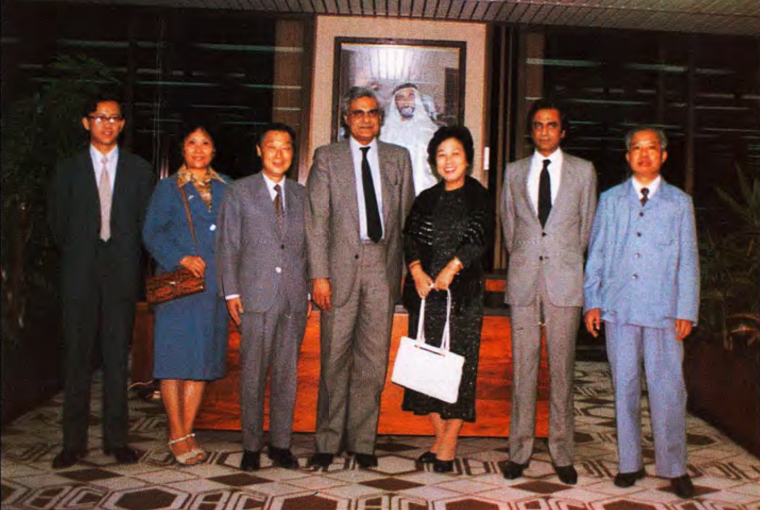
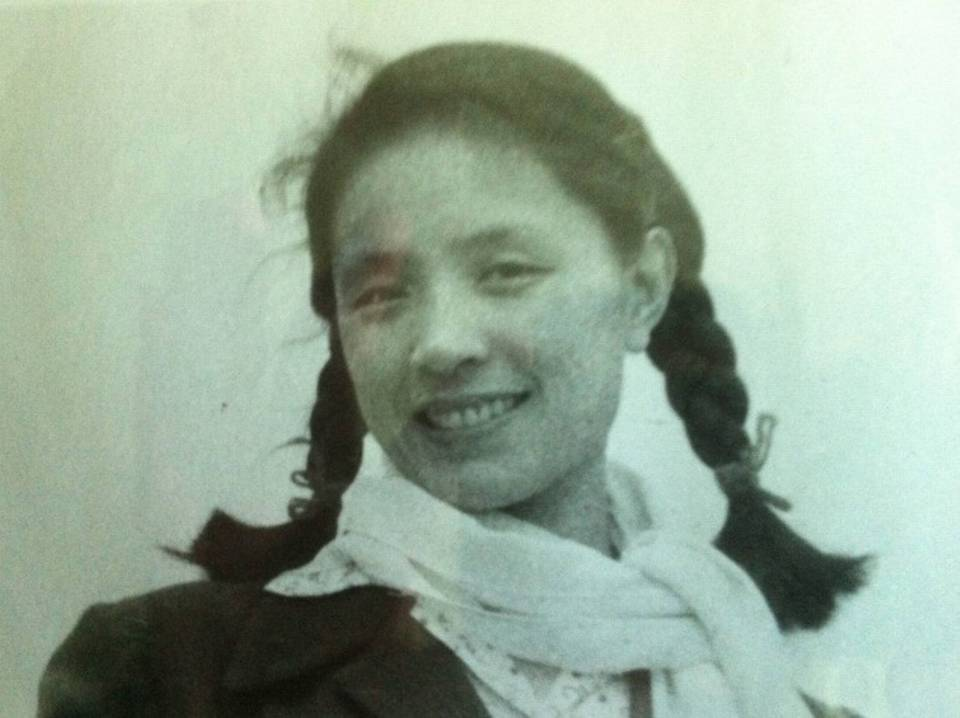
Ms Zhang Jun on one of her early visits to India in 1950s. Over five decades she forged a unique cultural link between India and China through her passion for Indian Kathak, Bharatanatyam and Odissi dance traditions.
Charitable activities in China
BCCI’s interest in the welfare of the Chinese people was demonstrated on a more personal level when a newspaper reported that the main hospital in Beijing was running short of some vital Western medicines. BCCI Beijing immediately arranged to procure the needed supplies and quietly handed them over to the hospital, whose grateful management and staff presented a formal citation to Mr Sultan Mohammad Khan, BCCI's chief representative in China at the time.


Almost since its inception, BCCI had used a proportion of its resources to improve the quality of life of the less fortunate. As an organisation BCCI was contributing through Global 2000 to improvements in health and agriculture in Third World countries.
Global 2000 and BCCI
Global 2000 was one of the results of former US President Mr Jimmy Carter's sense of obligation, once he had left the White House, to use the knowledge, influence and experience he had gained in office to continue the search for solutions to problems, on his agenda. These included the issues of education, hunger, health, the environment, human rights, conflict resolution and arms control.
Mr Carter was Chairman of Global 2000 and the two major sponsors were Japanese philanthropist Mr Ryoichi Sasakawa and Mr Agha Hasan Abedi BCCI President, both of whom were co-chairman.
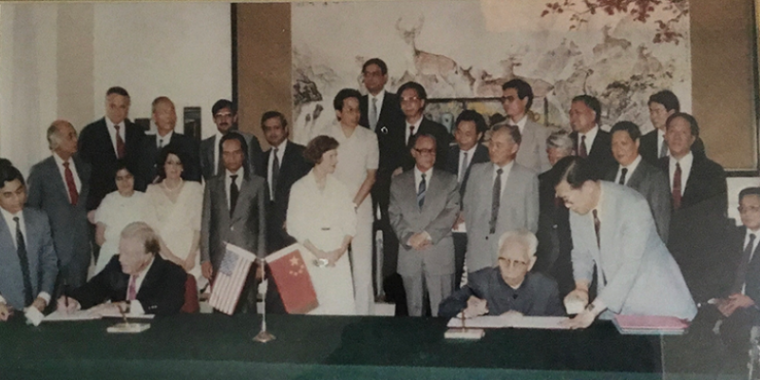

The focus on Corporate Social Responsibility (CSR) adopted by the large banks and multinationals organisation in the West in around 2000 to spend a part of their huge profits was something that BCCI began practicing far back in the 1980s.
The logistical support provided by BCCI Beijing office, during the visits of Mr Carter and Mrs Carter was essential and key to overseeing and continuing the work of Global 2000 in China. A BCCI officer, Mr Zafar Mahmood, was designated as BCCI's link to Global 2000.
In China, three million people had lost one or both legs, others had visual, hearing or mental handicaps and all in need of international assistance. Depressing statistics, but in each case BCCI brought new hope, as well as practical help, to local communities through sponsorship of Global 2000 health and rehabilitation projects. Their quality of life was improved with the introduction of new manufacturing technology in China. A lower limb prosthesis factory costing US$1.6 million brought together Global 2000 with BCC, the China Fund for the Handicapped and the State Ministry of Civil Affairs of the People's Republic in the common objective of supplying high quality artificial limbs to more disabled people, in less time and at a lower cost. Mr Wang Zhen, the Vice President of China was the Honorary Chairman.
.png)
Under a tripartite agreement made in 1987 Global 2000 and BCCI also took part in a special education programme in China. Its purpose was to train 300 teachers from all over the country to coach, in their turn, the teachers of pupils with special needs: the deaf, the blind and the mentally retarded. Under this scheme, professors from the US instructed students in three Chinese universities in the latest techniques. At a university in Shanghai, teachers were educated in early intervention techniques for the hearing impaired.
Further donations by BCC
BCCI made donations to foundations in China, the two important ones were the China Welfare Fund for the Handicapped established in 1984 also known as China Foundation for the Handicapped whose three basic functions are to represent the interests of people with disabilities in China and help protect their legitimate rights, to provide them with comprehensive and effective services and to supervise affairs relating to people with disabilities commissioned by the Chinese government, and the China Children's Welfare Foundation.
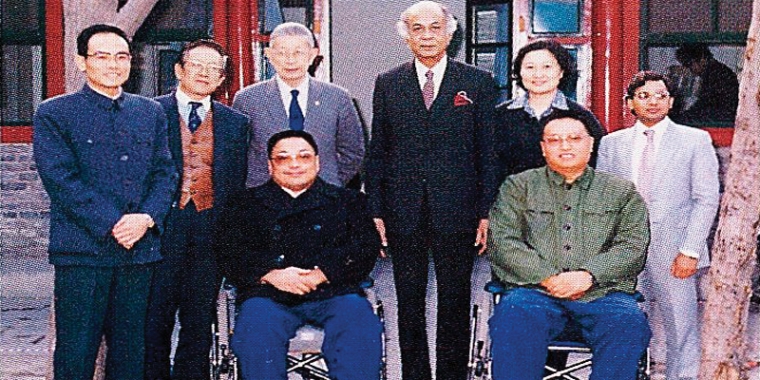

BCCI branch and other offices in China
The growing economic power of China and the activities of Chinese state-owned corporation in the developing countries constituting the Third World provided more opportunities for BCCI to offer services and the cooperation of its branch network worldwide. BCCI having a branch in Shenzhen and representative offices in other cities were important to facilitate China's exports and investments in the developing countries, it helped to further strengthen and widen BCCI's relations in China and increase the volume of business generated for other BCCI network of branches.
Shenzhen
Bank of Credit and Commerce International (Overseas) Limited (BCCI) and Hongkong Shanghai Banking Corporation (HSBC) were the two foreign banks that were the first to be granted a commercial banking licence by the Central Bank to establish a branch in the Shenzhen Special Economic Zone.
Shenzhen was a long and narrow city. In May 1980, it became the first special economic zone in China.

Strategically located in Guangdong province, in the Pearl River region, and adjacent to Macau and 35 miles from Hong Kong, Shenzhen was a principal doorway into mainland China. Shenzhen was also one of China's major ports for foreign trade and international exchanges.

Mr Asif Moyeen, manager of the new BCCI Shenzhen branch, and BCCI's first banking operations in China, began his banking career with BCCI in Bangladesh. He had worked in BCCI Beijing representative office during which period he developed and maintained close business relationships with Chinese banks and state-owned corporations as well as liaised with the People's Bank of China (the central bank). After serving in BCCI Shenzhen he went on to take charge of BCCI's new branch in Macau in 1983.
The bulk of the business that BCCI generated in mainland China that was directed to BCC Hong Kong branches was later handled by Shenzhen branch.
The branch manager was responsible for also overseeing the activities of BCCI's representative office in Guangzhou (Canton), a major port that was handling a major share of China's growing exports and imports.

BCCI Shenzhen branch was located at:
International Trade Centre
Remmin Road
Shenzhen Special Economic Zone
Telephone: (867552) 22 5780-1, 228416, 22 5767, 22 5875
Fax: (867552) 420220 BCCI CN / 420303 BCCI CN
Many large events including China Hi-tech Expo were held in Shenzhen every year. Being a major metropolis of China, Shenzhen had most of China’s electronics manufacturing.
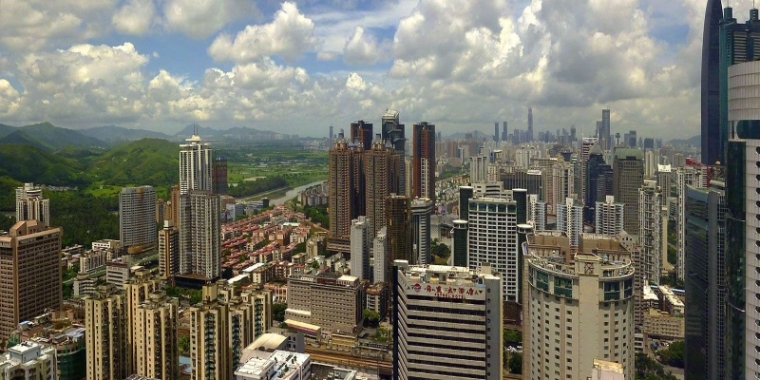
From 1980 the city had grown at a phenomenal rate, as a tremendous amount of both domestic and foreign capital was invested there. The success of the project prompted the Chinese government to convert several other coastal cities into special economic zones and to encourage modernisation in different fields.
Shenzhen has been extensively studied as an example of economic success; it demonstrated China’s efforts to overcome poverty and underdevelopment. By focusing on private sector-led dynamic, self-sustaining models rather than only relying on government incentives, it achieved technological up-scaling to improve its competitive position.
BCCI Management Training and Development Centre for China, Shenzhen

BCCI first held courses for Chinese bankers in the BCCI regional training centre in Hong Kong. However, there was constant pressure on BCC Hong Kong from Chinese banks and also from state-owned corporation, agencies and private local companies to train their employees with the basic knowledge of international banking and skills for handling foreign trade business and operations. China was becoming increasingly involved in buying goods and advanced machinery from the West and exporting Chinese manufactured goods and machinery. Most of the Chinese organisations keen on training their staff had not heard of the technical terms used in foreign trade and did not even know what a letter of credit was or were familiar with the Uniform Customs and Practice for Documentary Credits (UCP), a set of rules on the issuance and use of letters of credit in foreign trade dealing with imports and exports.
With the increasing demand coming from across China, BCCI took the decision to establish a dedicated training centre for China in Shenzhen, on the second floor in the International Trade Centre building where BCCI Shenzhen branch was already located.
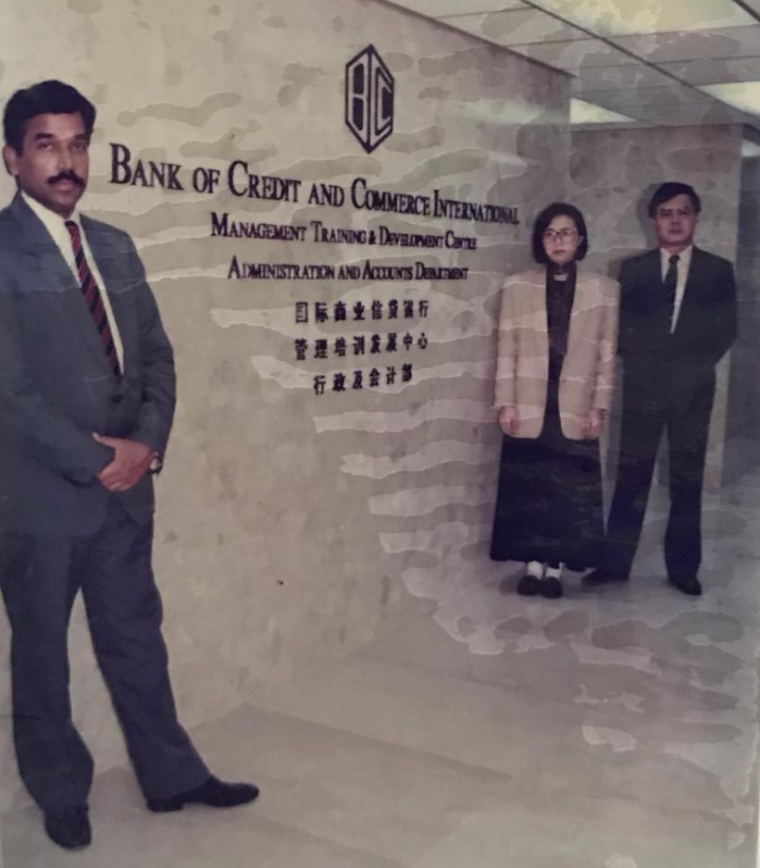
Mr Mehboobur Rehman and Mr Sirajuddin Aziz in the BCCI Hong Kong training centre set up the management development training centre for China in BCCI Shenzhen branch. Mr Rehman was the head of the centre and with Mr Aziz, they were the driving force of the training in China provided by BCCI. They travelled almost daily from Hong Kong to Shenzhen, and when required inside mainland China to deliver training onsite in many other places, especially Beijing, Nanjing, Shanghai, Fujian, Xiamen and in Mudanjiang involving a journey through the wilderness of Heilongjiang, China's northernmost province in proximity of the Russian border. The focus was on foreign trade and international banking.
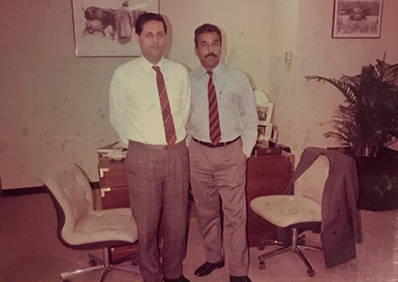
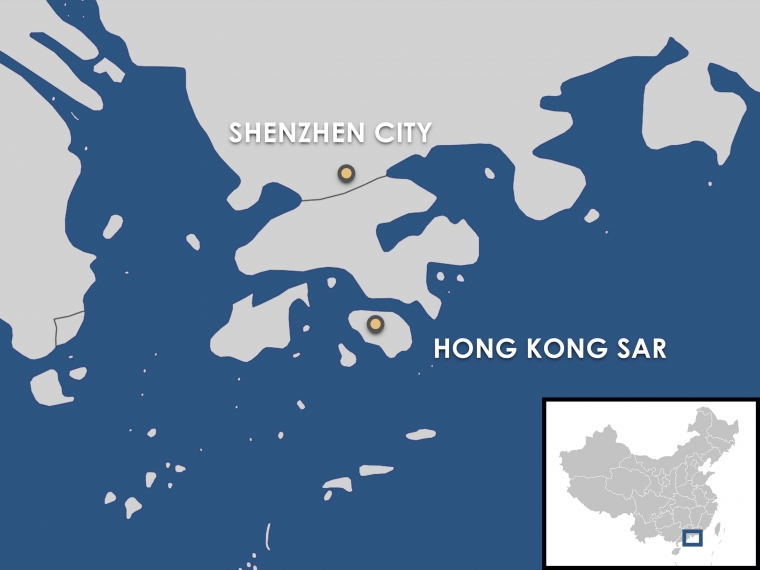
A special training was conducted by BCCI Shenzhen training centre in Mudanjiang on international trade at the request of the Agricultural Bank of China in the remote Heilongjiang province in North-east China for around Chinese 60/70 officials. The training was given by the head of the BCCI Shenzhen Training Centre Mr Mehboobur Rehman. All the sessions were recorded on video tape by the bank, to share with their other employees.

_1.png)
Training at BCCI Shenzhen training centre
Training was usually for one week, covering a full range of courses on international trade and international banking, keeping in mind China's strategy was to go to Third World countries, and provide services in infrastructure development, in order to stimulate economic growth and improve the quality of lives in both China and the developing countries.
_0.jpg)
The average class was 30/40 and went up to 65/70 on some occasions. The attendees from the Chinese banks and corporations included senior management of banks and corporations like the vice president, general manager, zonal manager, and operational managers. There was a lot of interest, and they were very keen to learn, China was opening up the economy following the open-door policy under the leadership of Deng Xiaoping. The attendees did not have a full understanding of international trade and lacked the technical knowledge and competency to conduct international banking transactions. Some did not even have general knowledge or know anything of the outside world. They all learnt quickly; they always had a lot of questions. For example, they were keen to learn about the risk factors, such as country risk, economic risk, and political risk.


The training was conducted in English language and translated in Mandarin, the official language of China. Around fifty percent time was allowed for translation.
The BCCI Shenzhen management development training centre also arranged field visits for the attendees, this included visits to the BCCI dealing room and the Stock Exchange in Hong Kong and London.
Award of certificates
On completion of training, the attendees were awarded a certificate signed by the Chief Representative and General Manager BCCI China and a member of the BCCI Hong Kong training team headed by Mr Mehboobur Rehman or Mr Sirajuddin Aziz. The Chinese officials who completed their training acknowledged that the training they received from BCC was one of the best and many proudly displayed their certificate issued by BCC in their offices.

Guangzhou (Canton)
Guangzhou was located at the meeting point of inland rivers and the sea and has long been one of China’s main commercial and trading centres. It served as a doorway for foreign influence since the 3rd century CE and was the first Chinese port to be regularly visited by European traders, who called it Canton.

Since 1950 there was substantial expansion of the city’s industries. Increasing investment was made in heavy industries, including those producing machinery, chemicals (notably petrochemicals), iron and steel, and cement, as well as shipbuilding; in addition, automobile manufacturing had become important. The biannual China Import and Export Fair (Canton Fair) held in Guangzhou, which began in 1957, became an institution of world trade.
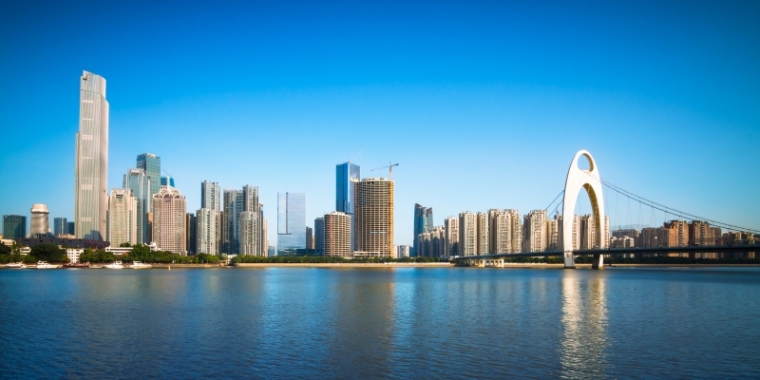
From the late 1970s much of the investment in the Guangzhou region had been by investors based in Hong Kong and Macau where BCC had its branches. It was convenient that BCCI should also maintain a presence in Guangzhou city which was becoming one of the major industrial complexes of southern China.
BCCI Guangzhou Representative Office was located at:
Room 440/441China Hotel
Lui Hua Lu
Guangzhou
Telephone: (8620) 66 68888 Ext. 40 – 41, 66 5301
Fax: (8620) 677 014
Telex: 44888 CHLGZ CN QUOTE RM 441
Guangzhou was the capital of Guangzhou province.
Since the 1980s, a growing quantity of manufactured goods and equipment (including mechanical, electrical, and electronic products) was exported via the city of Guangzhou to the world.
Canton Trade Fair
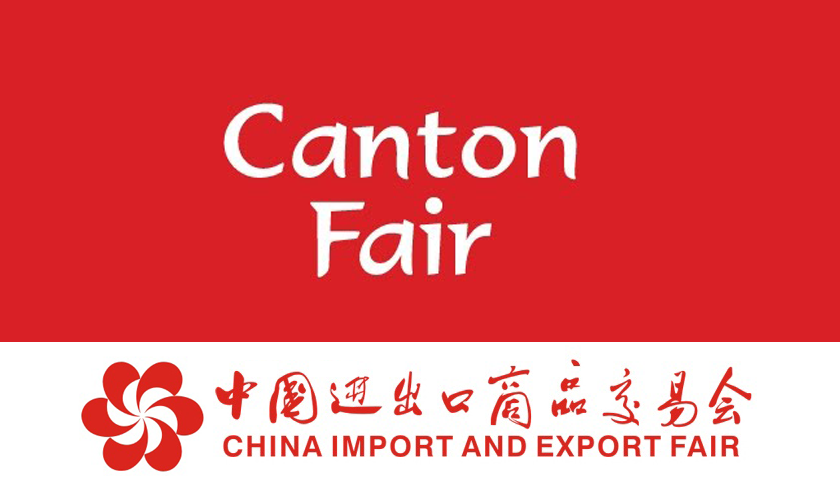 The Canton Trade Fair held twice a year, every spring and autumn since 1957 was the most important event of its type in China and one of the biggest and most visited commercial fairs stretching over almost three weeks. Its full name since 2007 was the China Import and Export Fair. The fair was co-hosted by the Ministry of Commerce of China and the provincial government of Guangdong Province (alternatively Romanised as Canton Province or Kwangtung) and organised by China Foreign Trade Centre.
The Canton Trade Fair held twice a year, every spring and autumn since 1957 was the most important event of its type in China and one of the biggest and most visited commercial fairs stretching over almost three weeks. Its full name since 2007 was the China Import and Export Fair. The fair was co-hosted by the Ministry of Commerce of China and the provincial government of Guangdong Province (alternatively Romanised as Canton Province or Kwangtung) and organised by China Foreign Trade Centre.
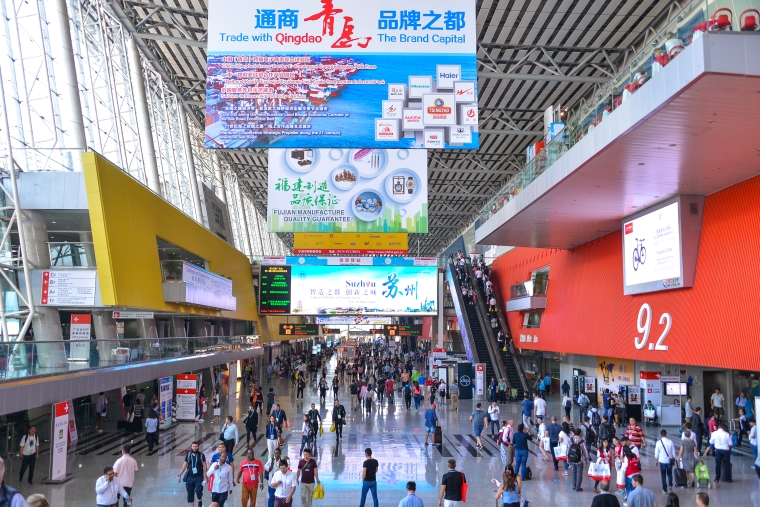
The fair was a meeting place for Chinese corporations and businessmen from all over the world. Representatives of the BCCI Far East Regional Office in Hong Kong and the BCCI Beijing representative office attended the fair held since 1983, to promote BCCI's services. BCCI representative office in Guangzhou took over this responsibility.
Shanghai
BCC achieved a major breakthrough in 1986 in its operations in China, when government approval was granted for the establishment of a joint venture investment and development company, to be registered in Shanghai. The venture, which was to facilitate investments by Middle East countries in worthwhile projects in China, had three equal shareholders: BCCI, the China International Trust and Investment Corporation (CITIC) and the Abu Dhabi Invesment Authority (ADIA) a sovereign wealth fund owned by the Emirate of Abu Dhabi (in the United Arab Emirates) who were shareholders of BCCI.
.png)
In view of Shanghai’s long domination of commerce in China and in keeping with BCCI’s growing business relationships across China and its expanding foreign trade, a representative office was also established in Shanghai.

BCCI Shanghai Representative Office was located at:
Room 2511-12
Rui Jin Building
205 Mao Ming Road (S)
Shanghai
Telephone: (8621) 433 4704-5 / 433 4891
Fax: (8621) 433 4892
Telex: 30285 BCCI CN

The largest number of trade fairs of China took place in Shanghai. Among the top five trade shows were the buama CHINA, Asia’s leading trade fair for the construction, mining and building-material machine industry, and the Shanghai Import and Export Commodity Fair attended by businessmen from all over the world.
Shanghai was also China’s leading industrial and manufacturing centre because of a distinctive combination of factors. Those included the availability of a large, highly skilled, and technologically innovative workforce; a well-grounded and broadly based scientific research establishment supportive of industry; a tradition of cooperation among producers; and excellent internal and external communication and supply facilities.
Xiamen
China’s new policies of economic reform and openness were instituted in the early 1980s, Xiamen was designated one of the country’s special economic zones. Located in the southeastern coastal area of China, Xiamen was linked with Guangzhou which attracted investors based in Hong Kong and Macau where BCCI also had branches.
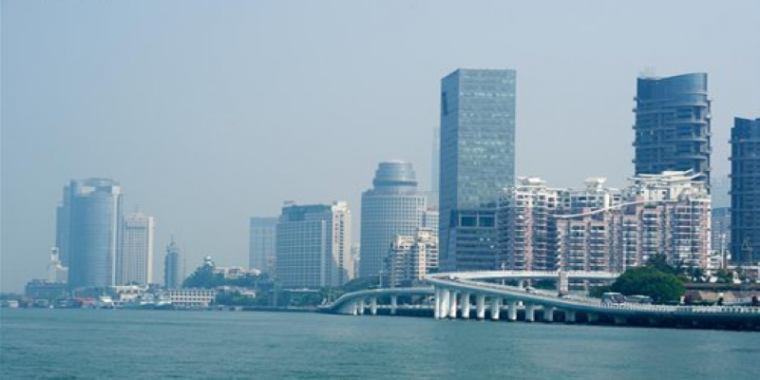
With special investment and trade regulations attracting foreign investment, particularly from overseas Chinese, Xiamen Special Economic Zone was expanded, and the city grew and prospered with foreign investment, particularly capital from Hong Kong, Macau, Japan, Switzerland, Malaysia, Philippines, Germany, UK and USA. BCCI had a presence in all these countries.
_0.png)
A number of foreign banks already had their representative offices in Xiamen.
BCCI established a representative office in Xiamen generate new business.
BCCI Xiamen Representative Office was located at:
Room 202, Lujiang Hotel
54, Lujiang Road
Xiamen Special Economic Zone
Telephone: (86592) 33 216 / 22 992 x 202
Fax: 9865920 33 216
Telex: 93154 BCCXN XN
Xiamen is also the host of the China International Fair for Investment held annually to attract foreign direct investment into the Chinese mainland.
A Chinese Screen at BCCI Central Office London
Visitors to BCCI main branch in UK and central office at 100 Leadenhall Street London, United Kingdom were greeted at the entrance by the sight of a five panelled, exquisitely worked imposing Chinese screen, which was presented to the BCCI President. It was a gift to Qian Long, the last of the strong Qing emperors who came to the throne in 1736.
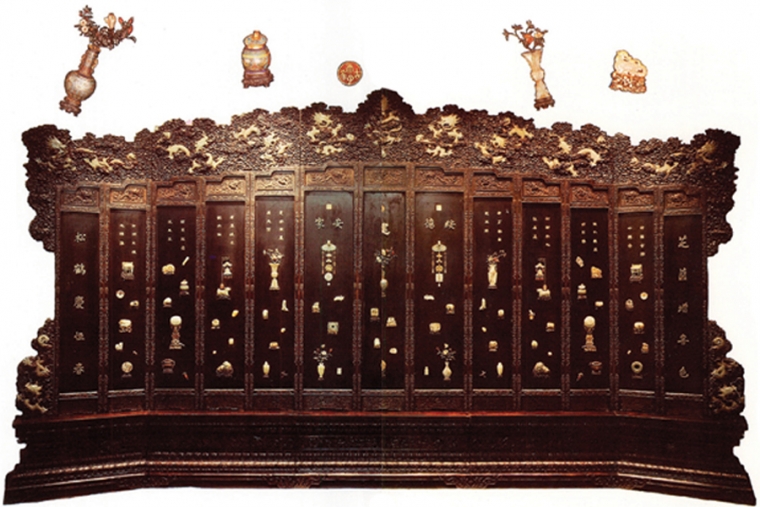
Although the inscription on the screen dated back to a distant past, their relevance to the pursuit of happiness and success was not lost on those work and flourish in the more enlightened of modern business environments. ‘Moral strength is the foundation of a peaceful home, reads the motto spanning the top of the three central panels.
BCCI closure
On 5 July 1991 the western central banks (Bank of England and other regulators) decided to abruptly freeze BCCI Group's assets and shut down BCCI's operating branches worldwide.
The priority of the governments and central banks in some countries was to protect their people and the local operations of BCCI continued in a different name after the assets and liabilities were acquired by private investors or another bank.
The Peoples Bank of China (the Central Bank) reportedly shut down BCCI’s operations in China on 6 July 1991. The Central Bank sent inspectors to examine the assets and liabilities. BCCI Shenzhen branch’s assets were immediately seized by local creditors through the Chinese Shenzhen Intermediate People’s Court.
China's state-owned companies and Chinese banks except the People’s Bank of China who were dealing with BCCI which were largely affected because of BCCI's globalised business and international banking. It had not been not possible to isolate the operations of China. However, for monies deposited with BCC Hong Kong the payout exceeded 100%.
The Central Bank did not have investments with BCCI because it did not deal in foreign exchange.
No further information is available.
BCCI Representative Offices in Beijing, Guangzhou, Shanghai and Xiamen along with the Management Training and Development for China in Shenzen would have ceased their activities.
The BCCI Group majority shareholders considered the abrupt action by western central banks to shut down BCCI in 1991 was unjustified when they already had detailed discussions with the Bank of England and other regulators on a restructuring plan and would have injected further capital, if required.
In a 24-page report not made public but sent to some 60 central bankers worldwide, the United Nations Center on Transnational Corporations said that by simply shutting down the 70-nation banking network that financed international trade of $18 billion a year, the economic damage fell hardest on countries like Nigeria, Bangladesh and Zambia, where B.C.C.I. was an important institution. (New York Times, Feb 5, 1992)
Also read:
Acknowledgment:
Mr Anwarul Amin, General Manager, BCCI China, Beijing
Mr Asif Moyeen, China Desk Hong Kong, Country Manager BCCI Macau
Mr Mehboobur Rehman, BCCI Training and Development Centre Hong Kong, head BCCI Shenzhen training centre for China

